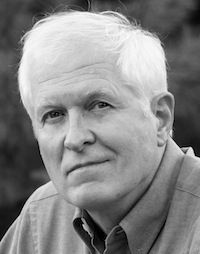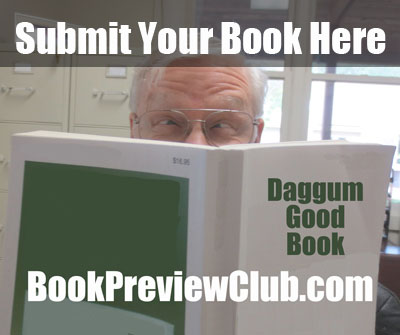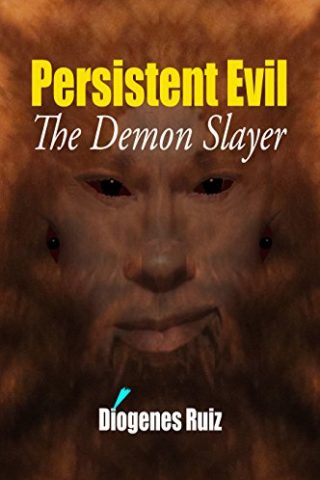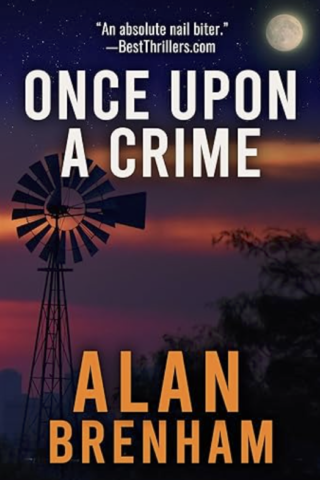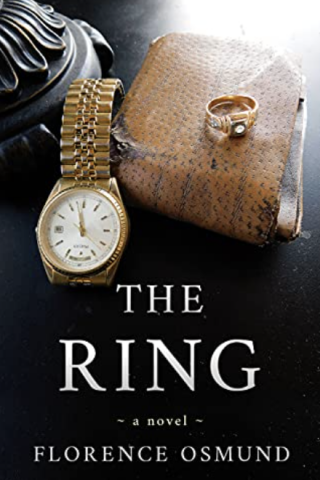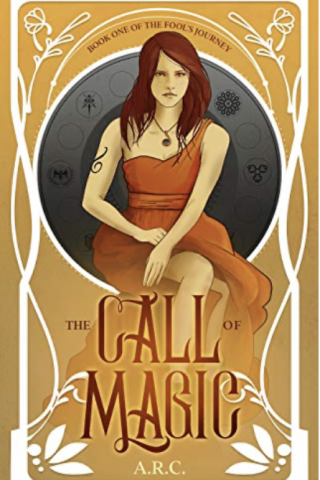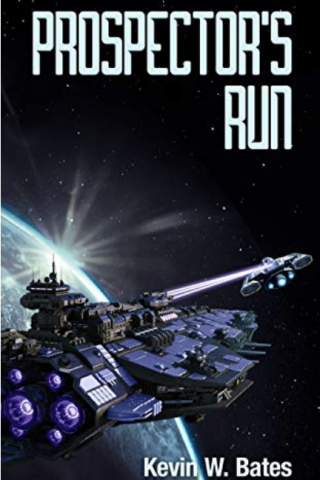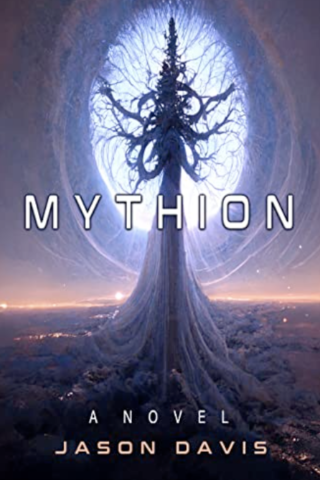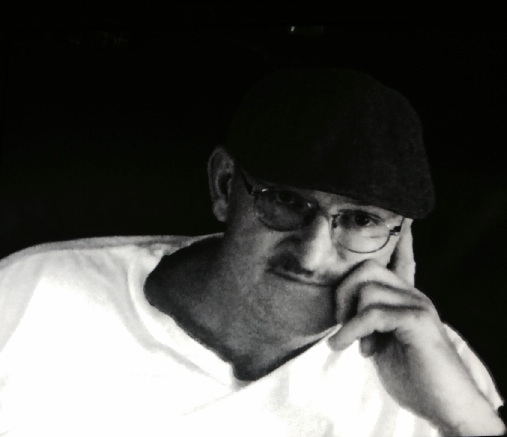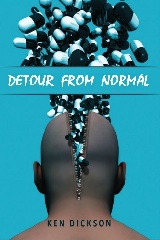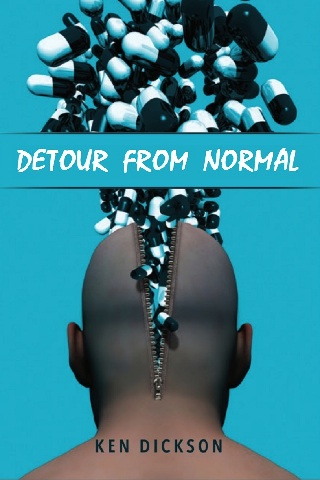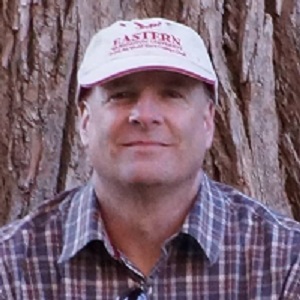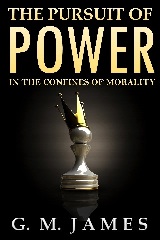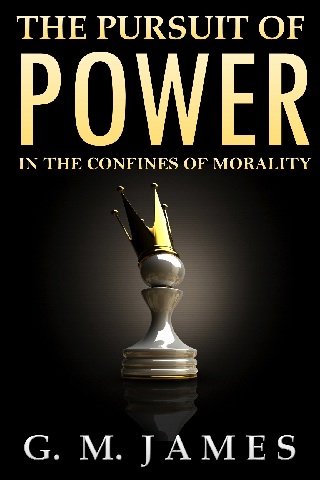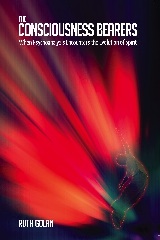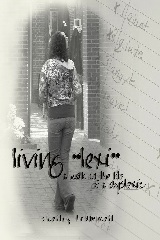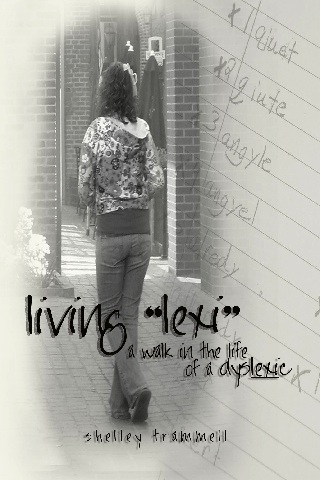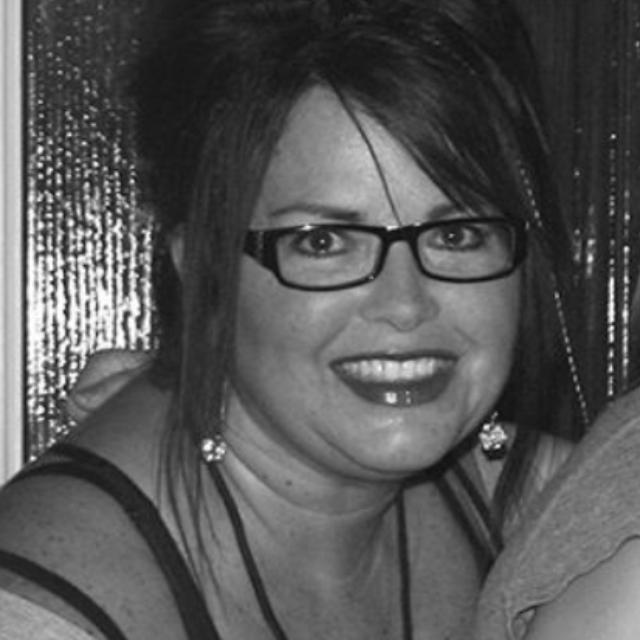[Web-Dorado_Zoom]
Preface
Mania is a psychological state that can be brought about by medical procedures, adverse reactions to medications (notably steroids and SSRIs), drug abuse (such as cocaine and methamphetamines), trauma (physical or psychological), or persistent mental illness such as bipolar disorder. Once experienced, it is something that will never be forgotten.
Detour from Normal is a true account of medically induced mania resulting from a lifesaving surgery, associated medications, and improper treatment. Because of the liberal use of medications, and their singular and combined side effects, mania is becoming increasingly more prevalent among postsurgical patients, commencing as long as several weeks after their release from the hospital.
Mania manifests itself in some of the following ways:
- Physical changes—increased energy, insomnia, catatonia, heightened senses, improved memory;
- Behavioral changes—hyperactivity, increased socialization, keen interest in new ideas or projects, rapid or excessive speech, overspending, increased sex drive or risky sexual behavior, poor judgment;
- Mood changes—optimism, happiness, euphoria, irritability;
- Thought changes—avalanche of ideas, uncharacteristic self-confidence, difficulty remaining focused, grandiose thoughts, delusions, hallucinations, loss of sense of time.
It is critical that these changes are detected early and treatment sought, or the patient will become incapable of recognizing his or her disorder and may refuse treatment.
Because of the little information available on medically induced mania, its treatment, and its prevention, the author’s family, friends, and relatives had no experts to turn to for help. In the hands of uninformed professionals to whom they entrusted his care, his condition rapidly deteriorated. Detour from Normal will not only awaken readers to the potential pitfalls of our medical and mental health systems, but it will also provide important information that may change the lives of loved ones potentially heading toward similar fates.
Beyond that, Detour from Normal is an incredibly human story told from the author’s heart, which is bound to impact anyone who reads it.
Introduction
Before April 14, 2011, I was just an average citizen, with a job, a house, a wife, kids, and a few pets. I was fifty-five years old and extraordinarily healthy. I’d never had any major surgery or mental health issues. If I ever did see a doctor, I left my medical forms almost completely blank: I had no medical history. I exercised regularly and had even recently completed a grueling hike up the Flatiron, one of most difficult hikes in Arizona.
After April 14, everything changed. What began as an emergency surgery to remove a damaged portion of my lower intestine quickly became something much more complicated. Over the next few weeks, I was rushed to emergency rooms, hospitals, and psychiatric facilities; I was administered over thirty different drugs, some against my will; and I suffered paralyzing seizures. I had six CAT scans—the radiation equivalent of three hundred standard X-rays. I had an MRI of my head, EEGs of my brain, and EKGs of my heart. I was hauled away by police and confined in a high-security facility where I was observed continuously, and I stood up to fight for my rights and my safety in court.
This is the true story of my ordeal, an insane snapshot of a life I could never have imagined would be my own. It was a time when no one who loved me or cared for me knew who I was or what to do with me. It was a time when everyone harbored identical concerns: what was wrong with me and would I ever be the same again?
Part 1: Misery
Chapter 1
Desert Hope
On Sunday, April 10, 2011, I’d been swinging a rusty pick for what seemed like hours, and it was now late afternoon. Despite the fact that it was only seventy degrees, I was sweating profusely, and my gray T-shirt was mottled with perspiration. I removed my baseball cap, wiped the sweat from my brow, and replaced it; then I took a long drink of water from the red-and-white Coleman water jug sitting close by. Years earlier I’d promised my wife, Beth, a lemon tree, and it was well beyond time to deliver on that promise. The day before, we had finally gone shopping for that tree. Somehow, after all that time, one tree just wasn’t appropriate and we ended up instead with two fruit trees, which were scheduled to be delivered later in the week. I could have arranged for holes to be dug and the trees professionally planted, but with the poor economy, four job losses, and months of unemployment in the previous five years, I wasn’t eager to spend more money than I had to. After resting for a few minutes, I once again hefted the heavy pick by its sun-bleached wooden handle, raised it high over my head, and drove it with an audible chink into the hard caliche.
Throughout my life I’d often had times when I felt I needed to prove my manhood—if only to myself. This was one of those times. I put every ounce of effort into each swing of the pick; despite the negligible response of the earth to my best efforts, I was determined that when I was finished, there would be two twenty-four-inch square holes where I stood, each two feet deep—just large enough for each of the two trees to be planted.
Unbeknownst to me, a disease had been at work on my lower intestines, perhaps for years. My bowels had weakened in several places and tissue had begun to bulge between muscle fibers. With each stroke of the pick, one of those bulges was stretching beyond natural limits. By the time I’d proven to myself that I could still do the work of a much younger man, the damage had been done. Though it would take days before I realized the full impact of what had transpired, my fate was sealed: the ride of my life had begun.
**
On the morning of Thursday, April 14, 2011, I was driving east on Highway Loop 202 on my way to work, ’80s rock and roll blaring from the tinny speakers of my aging Kia. In my right hand, I held a Hostess Mini donut from the open six-pack sitting on the passenger seat. My left hand vibrated gently on the steering wheel from the unbalanced tire that I’d always meant to get fixed but never did. I shoved the entire miniature donut into my mouth, chewed for a bit, savoring the rich cake and cinnamon flavor, and then washed it down with some Diet Coke. The construction for the new carpool on-ramp was finally complete, and the myriad cones, barricades, and reduced-speed-limit signs were gone. The effect was like an asthmatic taking a hit off his inhaler and suddenly having his lungs open up. Instead of tensely waiting for the brake lights of the car ahead to come on, now there were no cars in sight. The road was breathing again, and my mind was free to wander as it often had before all the construction.
As I drove, my body complained loudly to me about how badly it needed to use the restroom. I wondered what could possibly be going on. Since April 10, I hadn’t had a normal bowel movement. I didn’t consider that it could be something serious since both Beth and my children had been sick for days with similar symptoms. It had to be stomach flu of some kind. In any case, there wasn’t much I could do about that now, so I attempted to distract myself from my discomfort—my inability to relieve myself despite the fact that I felt a desperate need to do so. I forced myself to think about something more pleasant: my anniversary—my twentieth anniversary, to be exact. It was coming up in August, and I had been trying to figure out something special I could do for Beth. That led me to daydream about when I’d first met her.
When I first saw Beth in the spring of 1990, she had just walked through the door of Old Chicago’s in Colorado Springs. It was a blustery day and she was bundled in a heavy coat, scarf, and hat. I could see nothing of what she looked like but was drawn to something about her nonetheless. Unbelievably, she walked across the room and took a seat directly across from me. She then proceeded to unravel her many layers of protection. It reminded me of a moth wriggling out of a cocoon. I had no idea who she was, but she mesmerized me. As the evening wore on, I found that I loved the way she interacted with her friends. I loved her laugh and her smile, and, on top of everything else, she was gorgeous. She had dark, shoulder-length wavy hair, beautiful skin, a slim athletic build, and glasses. For some inexplicable reason, I had always been partial to women with glasses.
I was single at the time and really wanted to get to know her, but I was there that night to celebrate the college graduation of a female friend of mine. I was sitting at her side that evening in a kind of position of honor. I didn’t want to disrespect that by using the opportunity to pursue another woman, particularly someone I didn’t know. So I spent the evening spying on my future spouse. What followed was a kind of cat-and-mouse game over a period of weeks that I won only by tenacity and sheer luck.
Just over a year later, we were married. Our early years together were full of adventure, and wherever we went, we were always hand in hand. If ever we were apart for long, all we could think of was the other and we’d talk on the phone every day until we were together again, even if we were half a world apart. We were soul mates, and I couldn’t imagine anyone I’d rather be with. As time passed, we were blessed with two wonderful children, Kaitlin and Hailey. Beth had a new mission once they came into our lives, and her focus shifted toward motherhood. Beth was a terrific mother. She taught our children compassion and good manners. She instilled in them confidence and a zest for learning. She was a dedicated cheerleader and knew when to comfort and when to say, “Get out there and try again.” Though I was no longer the center of attention, I deeply admired her dedication to raising the children right, and through her, I learned how to be a good father.
Reminiscing about our life made me smile. The smile quickly faded, however, as painful cramps rippled through my midsection. I took a deep breath and arched my back in hopes that would stop them. Eventually they faded. I took that to mean that perhaps things were on the move inside me and I’d soon have relief from my days of gastrointestinal torture.
After the cramps subsided, I took stock of where I was and realized I was about to miss my exit. I gritted my teeth and swerved quickly, barely clipping the tip of the gore triangle. There’s a huge fine for cutting through the gore triangle, but I’d never heard of anyone actually getting a ticket for doing so. Still, I glanced nervously in the rearview mirror, expecting to see flashing lights. That quick decision saved me from having to drive another mile down the freeway to the next exit to turn around, something I’d had to do a few too many times due to day dreaming.
With my reverie interrupted, I was back to where I’d started: thinking about going to the bathroom again. I really had been making a lot of trips to the restroom lately. It was one of those things that, though uncomfortable, wasn’t bad enough to convince me to miss work, stay home or (God forbid) see a doctor. The strange thing was that every time I rushed to the restroom feeling that disaster was imminent, I couldn’t go. Lord knows I tried, but I just couldn’t do it. I was a little concerned about what would happen if I couldn’t go to the bathroom for several days or even a week. Would I explode? Would I start rotting from the inside out? I let it rest there. It was bad enough feeling the way I did—no need to make matters worse.
I arrived at work just after 8:00 a.m. I rushed straight into the three-story building, and leaping several stairs at a time, I covered the flight to my office level in no time. Instead of heading to my desk, I went straight to the men’s room—much as I had on previous days. Again I was unable to relieve myself, but this time I couldn’t urinate either. This can’t be good, I thought to myself, but remaining optimistic, I persisted in trying. I pressed and poked my abdomen, twisted my shoulders to the left and right, stretched to either side, held my breath, and pushed harder, but it was all to no avail.
Giving up, I headed to my desk, powered up my laptop, and checked my e-mail. I was pleased to see that from a work standpoint at least, everything was under control. I checked my calendar and made a mental note of the 10:00 a.m. meeting with my boss. Just as I finished with my e-mails, I felt as if an unseen assailant punched me in the gut. “Ow,” I moaned as I doubled over in my chair. The pain quickly escalated, and within moments I felt as if I’d been knifed to the hilt and the blade had been twisted for good measure.
I should have stayed put and called 911, but I was raised to be strong and independent, and I’d always been reluctant to ask for help. I stubbornly stood from my desk and staggered toward the stairway I’d sprinted up only a short time before. Once there, I leaned against the railing and let it slide through my grip as I stumbled down the stairs, swiped my ID badge over the badge reader, and exited the building.
Once outside I was in so much pain that I could hardly stand, let alone remember where I’d parked the car. I reached into my pants pocket, retrieved the car keys, and pressed the key fob repeatedly until the Kia responded with two familiar beeps. Although I’d effortlessly made the trek a short time before, the car now seemed impossibly far away. I meandered toward it, sliding along one car and bumping off the next as I went. I held my belly with both hands as if trying to prevent it from exploding. When I finally reached the car, I opened the door, collapsed into the driver’s seat, and retrieved my cell phone to call Beth.
“Beth? Hi, it’s me.”
“What’s the matter? You sound out of breath.”
“Something’s wrong with my stomach. I’m in so much pain. I need to get to an emergency room. Where should I go?”
I thought that Beth might ask a lot of questions or try to convince me to call an ambulance, but instead she cut right to the chase. She had been through countless emergencies with her own mother, and because of that she was intimately familiar with emergency situations, and with most of the local hospitals.
“Don’t go to Chandler General, go to Desert Hope—they have the shortest wait time.”
I winced at that reply. Chandler General was only two miles away and Desert Hope was nine. “OK, I’ll call you when I get there,” I said.
Beth, unbeknownst to me, was already headed to her van to meet me there—or perhaps she’d find me slumped over the wheel somewhere along the 202.
The pain had lessened but was coming in waves. I was sweating profusely, and perspiration ran off my head and into my eyes. I frequently wiped it away with my shirtsleeve, which soon was soaked. My pulse raced and my vision blurred as I finally arrived at Desert Hope. I drove frantically around the main building looking for the ER entrance. When I found it, I drove right up to it, screeched to a halt, swung the car door open, and waited expectantly for someone to save me. If it had been television, two young, strapping male nurses, or perhaps doctors complete with lab coats and stethoscopes would have rushed out to my aid. I would have collapsed in their arms, and they’d have loaded me onto a gurney and proceeded posthaste to the emergency room. But this was the real world. No one came for me. I took a deep breath, stood, and headed through the automatic doors, past black leather and shiny chrome wheelchairs that looked as if they’d never been used, and through more automatic doors. I looked around the unfamiliar facility wondering what to do next and spotted a sliding glass window to my right with the words “Check In” above it. I made it to the window by sheer willpower and then lowered myself, wheezing and drenched with sweat, into a chair in front of it.
“Can I help you?” asked a young, blonde woman with her hair pulled back in a tight ponytail. She wore olive scrubs, and her ID badge indicated that she was an RN.
“Yes, please. I’m in awful pain,” I replied.
“Where does it hurt?”
“My belly. I need to see a doctor right away.”
“When did the pain begin?”
The questions went on incessantly. Just when I thought I couldn’t answer one more, she finished. “That’s all I need for now. Would you please take a seat in front of the second counter to your left where it says Emergency Registration? Someone will be right with you to take care of your paperwork.”
Paperwork? my mind screamed. I’m dying and I have to fill out paperwork? Despite my despair, I thanked her and followed her instructions. I rose in agonizing slow motion, shuffled to the registration counter, took a seat in front of it…and waited. After considerable time, it became clear that nothing was going to happen if I didn’t take some action. “Excuse me?” I called out weakly. A plump brunette in a dark blue lab coat appeared seemingly from nowhere and proceeded calmly toward a chair on the other side of the counter. “I’m sorry about that,” she said as she plopped her large frame down in a chair and donned the reading glasses that hung from a cord around her neck. “It will just take a few minutes to get you registered; then we’ll get you some help.” She was very pleasant, but pleasant wasn’t making me feel any better.
“Is there a lot of paperwork? I really need help. Could I just sign a few things and finish the rest later?”
“It won’t take long. Do you have your health insurance ID card and a driver’s license?”
“Yes.” I reached for my wallet and pulled the yellow insurance card and my driver’s license from it, then handed them to her. She took the cards and passed me a small stack of papers.
“Now if you’ll just fill in the top section here with your personal information—you’re just giving us permission to treat you. The next form is regarding your insurance coverage, and the last is about the HIPAA Act and your right to privacy. I’ve marked everywhere that you need to sign with an X. Please read all the forms before signing them.”
I groaned and started filling in my address. I made it through half the paperwork and buckled in pain.
“Are you OK?” the woman asked.
I didn’t reply. I just took a deep breath and attacked the paperwork again, determined not to die while completing it. I skipped reading anything else and went directly to signing at the Xs.
“Thank you. Here are your cards back. Please have a seat in one of the chairs and someone will be with you shortly.”
I collected my insurance card and driver’s license and made my way to the nearest row of chairs, noticing that all the chairs faced a television. I picked up a magazine from the closest one, tossed it to another chair, and sat down. The television and magazine were hints that I could be there awhile—I prayed that wasn’t the case.
Thankfully, Beth was right about the ER at Desert Hope. I was one of only three people there, and it wasn’t long before a patient transport person came out with a wheelchair. He helped me into it, folded down the footrests, and then helped lift my feet onto them. He then wheeled me back into the ER. A male nurse arrived and helped me out of my clothes and into an ill-fitting hospital gown. I was barely able to make it into the gown before being racked with the worst pain so far. It felt as if someone had just thrust a fistful of red-hot pokers into my abdomen. I sought out my wheelchair with my hands and fell backward into it. As I fought the pain, I doubled over in agony and screamed through clenched teeth. Before long, involuntary tears mingled with the sweat running down my face.
Recognizing my extreme agony, the nurse said, “I’m going to get you some morphine. It should ease the pain.” I nodded in acknowledgment but was secretly concerned. I’d never had morphine in my life and didn’t know what to expect.
“Could you just give me a baby dose and give me more after a while if I need it?” Most people would have begged for all they could get, but I was adamant. He agreed, and a short time later I felt a prick in my arm as he injected a half dose of morphine. I waited and waited for the painkiller to kick in, but nothing happened. I was in so much pain by then that I imagined death must be imminent.
A short time later, a lanky Indian man in a white lab coat got behind my wheelchair and quickly began to push me out of the area. I was surprised that he didn’t wait for patient transport. “Hi, Ken. I’m Dr. Chandra; I’m an ER doctor. I’ve got to get you to a CAT scan right away so we can see what’s happening inside you. Hang in there. It will just take a few minutes.” I cringed at that. It seemed that everything in the ER was only going to take a few minutes.
Once we arrived at the CAT scanner, I was unable to do anything but writhe around on the table in pain. It was impossible to hold still long enough to complete the scan. After nearly twenty minutes, the morphine finally took effect. I relaxed and they were able to complete the scan. Afterward the doctor helped me off the table and back into the wheelchair.
“We should have some results shortly,” he said and wheeled me back to the ER.
**
“Where is he? Where’s my husband?” I heard Beth yell from the entrance of the ER.
“Hi, Beth,” I yelled weakly.
She saw me and ran to my side. “Are you OK?”
“I’m better. They gave me some morphine and it just kicked in. I was in horrific pain before that—the worst I’ve ever felt. They took me back to have a CAT scan, but I haven’t gotten the results yet.”
“Does anyone know what’s going on?”
“I don’t think so. No one’s said anything.”
A few minutes later, Dr. Chandra returned. “Are you Ken’s wife?”
“Yes, I’m Beth.”
“I’m Dr. Chandra, the ER doctor. I’ve looked at Ken’s CAT scan, and it looks like he’s got diverticulitis. There’s a micro-perforation on his sigmoid colon, which has allowed a gas bubble to form outside of his colon. That micro-perforation is what’s causing all the pain. In addition, his colon is most likely infected.”
“Is it serious? What can you do?” Beth asked.
“The best course of action is to treat it with IV antibiotics and see if we can stop the infection. If we can, he could potentially go home and might only have to make some dietary changes to prevent future infections.”
That was a relief to hear. I’d just have to relax in bed for a few days, recover, and get back to normal life. I was glad it wasn’t anything life threatening, although based on the severity of the pain, I was inclined to differ with the doctor’s optimistic prognosis.
I couldn’t stay in the ER forever, so they wheeled me to room 247 in the southwest wing of Desert Hope. Luckily, I was given a private room where I could suffer in solitude. For the moment the pain was manageable with regular half doses of morphine, which made me feel somewhat nauseous. I was glad I’d opted for the half doses or I’d probably have been vomiting and making things really complicated.
A nurse wheeled an IV cart into my room with two IV pumps attached to it. Each pump managed dosages of two different medications. One pump was for saline, a saltwater solution I would receive to ensure that I remained properly hydrated and that my electrolytes stayed in balance. The other pump was for Levaquin and Flagyl, two powerful antibiotics that would kill the infection. The nurse hung the bags of saline, Levaquin, and Flagyl on the hooks on the top tree of the rack. Each of the three bags of chemicals had a small drip chamber to monitor flow rate and to prevent air from entering my blood and causing a deadly embolism. The nurse placed a PIV (peripheral intravenous catheter) into a vein on the inside of my left forearm, through which my medications would be administered. After everything was connected to my single IV line, the nurse adjusted the individual flow rates on each pump, ensuring that all the drip chambers indicated good flow, and then left.
I napped fitfully through much of that afternoon. In the evening I turned on the television to see if there were any shows or movies to watch. I found that I needed to view several mandatory videos before I could watch anything else. The videos painted Desert Hope as a premier state-of-the-art medical facility, and covered the general rules and regulations related to my stay. What interested me most was the description of the pain chart. The pain chart had ten round black-and-white cartoon faces with the leftmost having a beaming smile and the rightmost having a horrified frown with tears squirting from its eyes. Beneath the faces were the numbers one to ten from left to right. The purpose of the chart was to help people better explain their pain to the hospital staff. The number ten was supposed to be like getting your arm cut off with no anesthesia. I couldn’t imagine how excruciating that would be. Based on the chart, I figured the pain I’d had was bad but not like getting my arm cut off, perhaps an eight or eight-and-a-half tops.
After watching the videos, I had to complete a quiz on them and pass 100 percent. I imagine that if I couldn’t pass, a nurse would have helped me. After passing the quiz, I was exhausted. I turned off the television and room lights and continued my fitful tossing and turning through the night.
The next day, April 15, I lay in bed watching movies and resting. Everything was looking positive. My white blood cell count was around 10.3, which was within the normal healthy range of 4.3 to 10.8. It was a good indication that my infection was under control. My pain had subsided and there was talk of sending me home in a day or so.
April 16 started out uneventfully, but as the day progressed, I felt more and more uncomfortable. By early afternoon, my original pain had quickly returned in its full glory, and a new pain suddenly sent fire across my abdomen, groin, and upper legs. This new pain was so intense that I had to hold my bedsheets away from my skin. The combined pains were the worst imaginable—without a doubt a ten. I could imagine nothing worse. Pain consumed me; I could think of nothing else and could do nothing else but fight it—not even call for help. So there I sat, alone in my agony, grimacing, yelling through my teeth, and holding the sheets away from my body.
In the middle of this episode, a nurse opened the room door, took one look at me, and rushed for more morphine. After twenty more minutes of intense suffering, the morphine took hold and things settled down. A short time later I was rushed down for another CAT scan to see what was going on. I got on the machine with a little less effort than before, but I could feel a pressure in my abdomen, a warning of worse yet to come.
The CAT scan showed more damage. I’d exacerbated the perforation with all the grimacing, yelling, and contractions of my abdominal muscles. The bubble on my colon had grown. No one could explain the new pain. I requested my doctor but could only see a hospitalist. Thankfully, he arrived quickly. He was a tall Asian man with gold wire-framed glasses, sharply dressed in black slacks, a white shirt, and a black tie. He had an air of professionalism about him.
“Hello, Mr. Dickson, I’m Dr. Hou. Tell me a little about what’s been going on.” I told him everything I could about the first pain, the first CAT scan, the burning, and the second CAT scan. He said “hmm” a lot but didn’t relate anything helpful. When he left, I felt no more encouraged than when he’d arrived.
After a few hours had passed, I sensed the start of pain again as the morphine waned. I braced myself for what I expected would be the worst pain imaginable when another doctor came in. He seemed the polar opposite of Dr. Hou right from the start. He was perhaps forty-eight years old and of Indian descent. He was stocky and around five foot seven. He wore a colorful reddish-brown print shirt with an open collar, no tie, and dark brown casual pants. His most endearing quality was his jolly, straightforward demeanor.
“Hi, Ken, I’m Dr. Bonjani. I’m a hospitalist working with Dr. Hou.” He extended his hand, and I shook it as firmly as I could manage. “Dr. Hou and I have conferred about your condition, particularly the new pain you are experiencing.”
“Have you figured out what it is?”
“Yes, your prostate is irritated in reaction to everything going on and is so swollen that it has squeezed your urinary tract closed. Consequently, your bladder is about ready to burst. When was the last time you peed?”
“Uh, I don’t really remember. It’s certainly been days since I’ve been able to pee. I just assumed I was dehydrated. Why does it hurt so much? I’ve never felt such intense pain in my life.”
“When I said your bladder was ready to burst, what I should have said is that it can’t hold one more drop of pee. Ken, you’re going to have to man up and get that pee out, or I’ll have to put a catheter in. Do you know what that is?”
“Isn’t it just a tube you put inside me?”
“Yes, but more to the point, someone has to take hold of your penis in one hand and force a tube up into it with the other—all the way into your bladder.” As he explained, he gestured vividly, leaving nothing to the imagination. “Once it’s in, they’ll inflate a bulb with saline solution so it won’t slide out of your bladder. You’ll be stuck with that tube hanging out of your penis and a Foley bag full of pee that you have to lug around with you wherever you go until I tell someone to take it out. Is that what you want?” he asked sternly.
“Since you put it that way, no. I’ll try to pee. Can I just use a potty so I don’t have to deal with all these tubes and the IV rack going to the bathroom?” I asked, pointing to all the IV tubes connected to me.
“Sure.” With that, Dr. Bonjani fetched the potty from the bathroom and placed it beside my bed. “OK, let’s see how manly you are. I want you to fill that potty to the rim.”
“OK,” I said doubtfully.
Carefully I disentangled all my tubes from the IV rack and made my way to the potty. Since the slit in my gown was in the back and I didn’t want to expose my naked bum to the nice doctor, I stood by the potty, carefully lifted only the front of the gown, and gave it my best shot. I grunted and groaned; I pressed in different areas of my abdomen with my free hand and stretched my body in different directions.
“Come on, you can do it. Don’t be a wuss. Get that pee out!” cheered Dr. Bonjani.
I’d never had a pee cheerleader before. Perhaps my mom had cheered for me when I was young, but if she had, she never told me about it. Having Dr. Bonjani cheer me on didn’t exactly put me in the optimum frame of mind to accomplish the job at hand. I was in limbo somewhere between embarrassment and laughter. After trying everything I could while standing up, I sat down, thinking that perhaps I might be more relaxed in that position.
“What? That’s a sissy way for a man to pee, but I’ll give you a break. Go Ken, go Ken, you can do it, yes you can,” Dr. Bonjani chanted, clapping in time.
I forgot all about being embarrassed at that point. Perhaps that had been Dr. Bonjani’s intention all along. I cooperated fully as he tried every “man” trick he could to convince me that I had it in me to defeat whatever was preventing me from peeing. Ultimately it just didn’t happen. In exasperation I finally said, “Put the catheter in, please.”
“OK, I’ll get the nurse to do it in a while. I still think you could have done it though.”
“Dr. Bonjani, since you’re here, can you explain what’s wrong with me? I don’t understand what happened. What’s diverticulitis?”
“Certainly. When the food you eat moves through your intestines, it’s very wet so it moves readily, and, thus, nutrients can more easily be absorbed by the intestines. Once the food has all been digested, all that’s left is a kind of soggy waste. Your colon is the last stop before you have a bowel movement. To conserve water in your body, your colon squeezes excess water out of the waste—kind of like wringing water out of a washrag—then recycles it.
“If you ate enough fiber and drank plenty of fluids, your waste would be like chopped, cooked spinach. In Arizona, people tend not to drink enough water and are often dehydrated. In addition, Americans in general don’t eat enough fiber. Your waste was probably more like sticky bread dough. The chopped spinach would move easily through, and your colon wouldn’t have to work at all. The bread dough on the other hand would stick to everything and is difficult to push through. So, being unable to move it readily, your colon has to expand to make room as it piles up.”
As Dr. Bonjani spoke, I realized that as an engineer, I spent a lot of time in laboratories and clean room environments where I wasn’t allowed to have a water bottle. In addition, whenever I was in those places, I tended to be very focused on what I was doing and could go for hours without a break, and consequently without anything to drink. I wondered, Is that the sole cause of my problem? I also wondered if there would still be a place for the finer things in life, like donuts, when I got through this, or if I was going to have to spend the rest of my life downing bran cereal and vegetables instead.
“Your colon is like a mesh of muscle fibers that can expand a great deal.” Dr. Bonjani placed the fingers of one hand over those of his other at a right angle then spread his fingers to show how the colon can expand in a sort of web fashion. “With the spinach, the mesh is tight and there are no issues. With the bread dough, the mesh expands. As the muscle fibers contract to squeeze out the water and move the waste, the tissue between them balloons out. Over time permanent pockets called ‘diverticula’ form. This condition is called diverticulosis.”
“Why didn’t it show up on any tests I’ve had? I just had an ultrasonic body scan only a few months ago.”
“The pockets don’t have to be very big to cause a problem, so they can be hard to spot. In addition, you can live your life with those pockets and never have a symptom. Something just happened to one of yours. The pockets can plug with food or seeds and become infected or even rupture. If a pocket becomes infected, the condition is called diverticulitis. That’s what you have now.”
“Can you remove infected diverticula?”
“The infection generally spreads beyond the diverticula. We’re trying to treat your infection and see if the diverticula will heal on its own. If it doesn’t heal, we’ll have to surgically remove part of your colon.”
I thanked Dr. Bonjani for being my cheerleader and for the detailed explanation. He left with a smile, and I waited for a nurse to come to my rescue and install the catheter before the pain returned.
I felt embarrassed again as a pretty young nurse came into my room to perform the procedure. I wished that there was some way I could do it myself. It was one thing to listen to Dr. Bonjani describe the procedure and quite another when I was faced with the reality of it. Once the catheter was finally in place, however, all feelings of embarrassment vanished as I experienced instant relief. It was unbelievable how wonderful it felt to let go of almost a liter of
urine in only a few seconds. I could actually feel my belly shrink as the Foley bag filled. “That’s the best thing I’ve felt in days!” I exclaimed to the nurse.
The next two days were a blur of misery. After my extraordinary pain on April 16, my body reacted fiercely. My white blood cell count shot up to 17.3, and I spiked fevers as high as 103. I hadn’t been allowed to eat or drink anything since April 14; I was starving and thirsty all the time. The doctors continued to flood me with chemicals, and by April 18, my fevers subsided, and my white blood cell count returned to 10.3. No longer was anyone talking about me going home. Instead I was scheduled for surgery on April 19. The doctors needed to open me up and see what was going on. It was a certainty that I would lose part of my colon.
On April 18, four days after I had been admitted, I was to prepare for surgery by drinking Golytely. Dr. Bonjani returned and explained to me in technical terms how Golytely draws large amounts of water into your bowels to quickly and thoroughly “wash you out.” All I could think about was how badly my gut was going to hurt every time I went to the bathroom.
I had to drink eight ounces of Golytely every ten minutes until I polished off a gallon of the evil salty, metallic-tasting concoction—the same as drinking four of the big thirty-two-ounce Big Gulps sold at the convenience store.
It took an hour and a half before the Golytely kicked in. At that point things got a little chaotic. It was a nightmare trying to snake through all my various tubes and make it to my potty before having an accident. There were many close calls as I negotiated the vinyl spiderweb every ten minutes or so. Sure enough, the pain was miserable, and I needed a fresh shot of morphine before I was halfway through. After a few more hours and a raw behind, I was finished, ready for surgery. Or so I thought. My surgery was postponed until April 20. The next day I got to do it all over again: another round of Golytely, dealing with the vinyl spiderweb and the pain. My surgeon either wanted to make sure I was extra clean, or he was a sadist.
That night, the movie Invictus played on my room television. It starred Morgan Freeman and Matt Damon. Morgan Freeman played Nelson Mandela, who, after spending twenty-seven years in prison, was released in 1990. Through a twist of fate, he became president of South Africa. Matt Damon, on the other hand, played Francois Pienaar, captain of the downtrodden and hated rugby team, the Springboks. After Mandela attended one of the Springboks’ games, he decided to support the team and met with its captain. He convinced Francois that a victory in the World Cup, then almost a year away, would inspire and unite the nation. He also shared the poem “Invictus” with him, a poem that had been special to him during his trials and tribulations in prison.
What followed was a lot of hard work, broken bodies, sweat, and grunting as the Springboks brute-forced their way up from the bottom of the rugby ladder. Unfortunately, I don’t remember much after that. I wanted to watch more, but the day had been just too much for me. Before I knew it, Invictus was playing to a sleeping audience of one.
Chapter 2
Under the Knife
In a hospital sleep comes in broken pieces. There’s always a nurse who wants to check your vitals, an IV bag emptying and setting off an alarm, or a shift change, requiring someone to come in and check off boxes on their endless paperwork. A constant stream of people randomly entered and exited my room, and if I was lucky, they’d close the door behind them. Otherwise I got to listen to the night-shift sounds in the hallway, too. Eventually the night ended, and, although the sun wouldn’t ever peek through the north-facing blinds of my room, the light of day shone around them.
It was April 20, the day of my surgery, and I was ravenous. I would have died for a nice breakfast of waffles or pancakes and bacon—maybe some milk with ice, too. I hadn’t been allowed to eat for six days, and for two of them, my digestive tract had been completely flushed out. My stomach would have rumbled if it could have, but it was now as equally dead as my intestines. Everything had automatically shut down days ago to protect my body from further damage. Though I still felt hunger and thirst, it would have literally killed me to give in to those cravings at that point.
It wasn’t long before Beth arrived to be by my side when they took me to surgical prep. I pressed a button on the side of my bed to raise it so I could see her better. I couldn’t raise it very much due to my distended belly, which had been increasing in size by the day. My intestines were swelling, and, without muscle peristalsis, gas was trapped inside them as well.
“What do you think?” I said. “They say I’ll give birth any minute. Do you still remember those breathing exercises?” I tried to make light of my distended belly, but being so close to the knife, nothing could transform something so serious into a laughing matter. Beth made a genuinely good attempt at smiling anyway. I was proud of her. She’d been so strong through everything, and a little dervish in the background making sure no detail was missed and that only the best folks were on my team.
“I always wanted another baby,” she said. “Maybe we’ll have a boy this time.” She reached out from my bedside and patted my belly.
After a moment, I took her hand and held it against me. I looked her in the eyes and said, “I know this looks like crap, but I’m going to be OK. I just know it. I have absolute faith. And besides, we’ve got Dr. Demarco on our side. He sure went overboard to save your mother when she had her perforated bowel. In my book, he’s the best. I can’t believe our good fortune having him as my surgeon.”
“Yeah, I know,” she said, but I could see she was holding back tears.
I squeezed her hand and smiled. We shared an uncomfortable quiet after that. It was difficult to have a conversation in such an unusual situation. Unusual for me, at least—I had been in such good health all my life. What I was experiencing was completely alien to me. If I hadn’t already personally known the surgeon, I probably would have filled several tissues with tears and snot. My only experience with surgeries had been sitting at my mother-in-law’s side in the intensive care units on multiple occasions, watching the erratic heartbeat on the monitor and wondering if she was going to die right in front of me. It was never a pleasurable experience, but at least she’d always come around and I could forget about the bad parts. I was hoping that’s what would happen with me.
Soon hospital staff began to trickle in: a nurse, an aide, and a patient transport person. The patient transport person was a young girl with blond hair in a ponytail, wearing a black shirt and khaki pants. “I’m Susan,” she announced. “I’ll be taking you to surgical prep. Do you need to go to the bathroom or anything before we go?” I nearly laughed—one end of my body wasn’t working and the other end was hooked to a bag. Before I had a chance to respond, a red glow crossed her young face. “Ah, I’m sorry about that. Let me take care of that Foley for you,” she said.
The pumps went silent as they were turned off, and the vinyl spiderweb vanished as all the lines were disconnected. Aside from the Foley catheter, I was soon free of everything and ready to go. Susan released the brakes on my bed, pulled up the guardrails, and reclined it. Before I knew it, the electric bed was moving at a good clip down the hallway with Beth trailing close behind. I could feel a breeze in my face. It was a wonderful feeling that I’d almost forgotten. It’s funny how at traumatic times you can still appreciate such simple things. I counted the florescent light banks as we rolled smoothly down the industrial carpet of the hall—thirteen of them. I found it somehow calming to count them as I rolled toward my uncertain future.
When we finally arrived at the entrance of the surgical prep area, Beth joined me at my bedside and smiled; despite her best efforts, it was but a half smile filled with worry and dread. I took her hand and squeezed it. “Thanks for being here with me.”
She leaned down and kissed me. “I love you. I’ll be waiting for you.”
“I love you, too. I’ll see you in a while.”
With that, Susan rolled me through the automatic door of the surgical prep room. There were no walls in surgical prep, just curtained partitions. We rolled past a few and then finally turned into one. Susan parked me there, wished me luck, and said she’d get Ms. Santos, the anesthesiology technician. She pulled the curtains closed and left.
There wasn’t much to look at or do at that point. I tried not to think about what was about to happen. If things went well, I’d have a cut and be done. If not, I’d have a colostomy bag and hopefully be able to come back in a few weeks and have another surgery to reattach my intestines. If things went poorly, I’d be stuck with the external plastic bag permanently and have to dump it and wash out the remaining excrement several times a day for the rest of my life. Fortunately, or perhaps unfortunately, depending on how you looked at it, a family member already had a colostomy bag, so even if I didn’t have any experience with it, there was someone in the family who did. I told myself it would be better than the alternative, but I crossed my fingers that I wouldn’t need one.
I closed my eyes and tried to think pleasant thoughts: my kids, my dogs, even my kids’ pet rats. I thought of all the wonderful memories we had and hoped that that was what everyone would remember if I didn’t make it. But then I mentally scratched that last thought. Of course I was going to make it. After a half hour or so of revisiting my life memories and trying to convince myself that I wasn’t having a “life flashing before my eyes” moment, the anesthesiology tech arrived. She introduced herself as Mary and explained what she would be doing. I knew what to expect, or so I thought. I’d been under anesthesia a few years before for a minor hernia surgery, and the anesthesiologist had me count back from one hundred. I made it to about ninety-seven. That’s what I was prepared for, so when Mary gave me the shot that was just supposed to make me a little woozy, I thought I still had some counting to do. I thought I’d get to remember a little more. But that was it. I watched her start to inject the drugs into my IV, and I was gone.
According to Beth, a six-member surgical team worked on me for four grueling and tense hours before I was wheeled out of surgery into recovery.
Chapter 3
Twilight
“And what can I do for you today, my son?” someone asked. I knew that voice, but it wasn’t my surgeon. I looked over to see a man in a colorful Madiba shirt and black slacks with his back to me. He was washing his hands for surgery. After they were clean and dry, he turned to me, his fingers facing up at chest level. A nurse pulled a white latex glove onto each hand, letting loose a puff of powder as each glove hit home. A surgical mask covered his face, but I recognized those calm, wrinkled, wise eyes: Dr. Nelson Mandela. Well, he was actually Morgan Freeman, but to me he was Dr. Nelson Mandela.
“Ah, I see,” he said as he noticed my naked belly. My intestines were so racked with infection that my belly had swollen to the point of looking nine months pregnant. It was shaven as clean as a baby’s behind, and a glaze of Betadine coated it and dripped down my shivering sides onto the cold stainless steel table on which I lay. He walked toward me, eyeing the stainless steel cart that was set up next to me. On it was a rolled white cloth. He approached and within plain sight unrolled the cloth. There was an unmistakable clanking of steel against steel as it opened to reveal several knives.
There was a butcher’s knife with deep, asymmetrical gouges on the sides and a rough, uneven cutting edge where it had evidently hacked into bone. There was a bread knife on which all the teeth were rounded from years of sawing through flesh. There was a thin boning knife that had been sharpened so many times, all that remained was the sharpest sliver of a knife I’d ever seen. Lastly, there was a carving knife.
Dr. Mandela picked up each knife and examined it carefully until finally he picked up the carving knife. Its blade glimmered like a mirror. Unlike the other knives, its edge was razor-sharp. It was both a spectacular and frightening instrument. Turning it over, he admired it and said, “Ah, this should be perfect for the job.” Then he turned to everyone in the OR, and they bowed their heads. They spoke in such low voices that I couldn’t make out what they were saying.
Eventually, Dr. Mandela turned back to me and continued speaking. As he did so, I recognized the final words of the poem “Invictus” that had empowered him with its message of self-mastery so many times while he was imprisoned at Robben Island Prison.
… It matters not how strait the gate,
How charged with punishments the scroll,
I am the master of my fate:
I am the captain of my soul.
Then he turned to me and asked, “Are you ready, son?” I didn’t reply. Instead I held my breath and blinked at him like an animal at slaughter. The knife in his hand suddenly flashed in the glare of the operating table lights. “Well then, let’s see what we’ve got.” With that, he raised the knife.
“Dr. Mandela, no…don’t do it!” I yelled. He looked at me one last time with a gleam in his eyes, then plunged the blade below my ribs and ripped me open down to my groin.
**
I gasped and opened my eyes. I was cold, shivering despite several blankets laid across me. I looked around, wondering where I was.
“Hi, hon.” I turned my head to the side, and there sat Beth in a chair by my bed. My throat hurt from the airway that had recently been removed from it. I cleared it and tried to speak, but my voice was weak.
“Where am I?” I croaked.
“You’re in your room. You woke up about four hours ago in recovery. Don’t you remember?”
“No, the last thing I remember was being in prep.” It was dark in the room except for a fluorescent light above my bed. The sun had clearly gone down. “How did I get up here?”
“After you first came around and they determined you were OK, they decided to get you out of recovery. You went back to sleep after that. Everything went well. You didn’t have to have a colostomy.” I reached down and felt a long, thin pad on my belly, thankful that there was no plastic bag there.
“Thank God for small favors,” I said.
“Hey, what were you just saying about Dr. Mandela?”
“Oh, that.” I didn’t want to tell her the truth—she’d think I’d lost my mind. “It was just something from the movie Invictus. I started to watch it last night before surgery but fell asleep partway through. It was pretty inspiring.”
But to me, there was meaning to the dream. It was telling me that there were bad times ahead. If I persevered, everything would be all right—I would be the master of my fate and captain of my soul, but if I did not persevere? There seemed to be no answer to that question. I’d often had such vivid dreams but could never be certain of interpretations until after the fact, so I wasn’t about to tell Beth that things were going to get worse before they got better; it already seemed bad enough. Despite my prophetic dream, I couldn’t have begun to know at that time how bad it was really going to get.
Chapter 4
On the Mend
I took stock of my changed surroundings. There were a few new bags hanging on my IV racks. There was also now a tube releasing oxygen into my nostrils held in place by a plastic shield that partially covered my mouth. A rubber band around my head kept the shield in place. It was part of a monitoring system used to measure CO2 in my breath, tied into what I called the “Michael Jackson Pump” or “MJP” for short. The MJP was a morphine delivery system that allowed me to dose myself as needed, no more than once every six minutes. On the bed lay a push button assembly, which I could press to inject morphine into my IV. The shield monitored the CO2 in my breath as I exhaled to make sure I didn’t overdose. I called it the “Michael Jackson Pump,” because I could envision that he might not have died had he been connected to a system like that: it made a real racket if you stopped breathing or if the CO2 got too high.
I noticed something surprising after my surgery: I didn’t have any pain. I had a twelve-inch incision, my innards had all been shifted around or cut up and sewn together, and I had thirty-six staples and several feet of sutures holding me together—but no pain. I knew that morphine was a respiratory system depressant, and I was very concerned about weakening my respiratory system and getting a respiratory bug. Hospitals are notorious for fostering superbugs; the last thing I wanted was to depress my respiratory system. With no pain I really didn’t want any morphine, which might lead to other complications. I brought up my point to the nurses and doctors and asked if it could be removed. They were all adamant that I keep the morphine pump in case I needed it.
Since I was stuck with it, I felt I should at least understand what it could do for me. I already knew that getting morphine through a needle worked wonders for pain, but had no idea what to expect from a pump. The first night post surgery, I decided to give the system a test drive. My intention was to evaluate the effects of dosage, hopefully culminating with a deep, restful sleep. I pressed the button once and waited: nothing. I waited six minutes and pressed it again. What happened then was completely unexpected: I began to hallucinate. At first there were bright colors and soft shapes twisting and floating peacefully, but then the colors grew dark and sickly, and the soft shapes evolved into angular machines of destruction peppered with sharp, steely barbs. Instead of floating peacefully without a care, they now seemed self-aware and purposeful, and I couldn’t help but think that their purpose had something to do with me. I held my thumb over the button, tempted to press it a third time and get beyond the disturbing visions to my goal, but I couldn’t do it. Instead of believing that things would improve, I felt that they would only get worse. I never did hit that button a third time; I just suffered through the hallucinations until they burned themselves out. I ended the experiment there.
During my hospital stay, I tried my best to be a good patient, partly to be respectful and partly because I wanted to get out of there as quickly as possible. Among other things, I was very dedicated about using my spirometer before and after surgery to keep my lungs clear while I was spending so much time on my back in bed. A spirometer is a plastic device consisting of a hose and a graduated tube with a plastic disc that floats up during inhalation. The idea is to keep the disc as high as possible in the tube by inhaling hard for as long as possible, then holding all that air in for at least five seconds, after which you exhale and rest for a few seconds. I was supposed to do that seven times every twenty minutes. When I did that, it spread my lung tissues open and helped my lungs clear out mucous. It was very effective, and I could feel the difference after doing it.
With my CO2 monitor, I could only inhale twice before the MJP alarm went berserk. I tried all kinds of things to trick it unsuccessfully. Again I asked the nurses and doctors if they would remove the morphine pump, but they still refused. I hadn’t used it at all since trying to put myself to sleep with it. I was genuinely concerned that all the days on my back were going to be my demise if I couldn’t keep my lungs clear.
Sure enough, my respiratory concerns proved valid. The next day—April 22—I went down fast. My white blood cell count shot up to 17.3 again, and my temperature went up to 103. As the morning wore on, it became more and more difficult to breathe. I was literally drowning in my own mucous, and my vital signs were in a steady decline. The flow of nurses, then doctors, to my room increased. Like me, everyone was focused on my lungs. At their command, I’d wheeze air in, and wheeze it out. They listened intently at the four quadrants of my back with their stethoscopes. They tapped on my back and listened again. Each would enter with a smile and exit with a look of concern.
Eventually, the flow of staff stopped and I was left alone in my suffering. It was worse than when I was young and had my lungs seize up from childhood asthma. At least that had ended. This only got worse. I’d never felt I was done for in my life, but that day I genuinely did for the first time. That hospital room was going to be my last stop.
Just then a nurse and an aide scrambled into the room and commenced popping off IV lines. In no time I was counting fluorescent lights on the ceiling again as they rushed me to get another CAT scan. After making the journey to the first level, I soon found myself outside the CAT scan room once again. Because of my fever and high white blood cell count, the doctors were concerned that my resectioned bowels were leaking, spreading infection throughout my body.
All the activity helped clear my lungs a bit, and it was a little easier to breathe for a change, but more bad experiences were just around the corner: I was to have a “contrast enema” so they could look at my surgical repair in more detail. Everyone was in a terrific rush, so there was little consideration of my comfort. I’m sure they explained everything they were about to do, but in my condition I was focused elsewhere. The technician had me roll over onto my side, then suddenly jammed a cold enema nozzle into my freshly stapled and sutured rectum, and filled me with equally cold contrast fluid. The pain was horrific. To make matters worse, once I was filled near to bursting, I was told I needed to hold the fluid in for several minutes while the CAT scan machine created the images they needed.
What I didn’t realize until that moment was that during my surgery just over a day before, a “dilator” had been used to stretch my anus to extra-large proportions so an EEA (end-to-end anastomosis) stapler that was about as big around as a golf ball could be slid into it. The EEA stapler was used to pull my rectum and shortened colon together and then apply two neat rows of titanium staples to reconnect them. In the process, things got pretty ripped up down there. I had no way of knowing that because I hadn’t gone to the bathroom since my last round of Golytely before my surgery. That couple of minutes in the machine felt like a year. Finally, they were finished. They drained me like I was a big water balloon, wheeled me back to my room, and hooked me back up to all my machines to await results. After a while a new doctor I hadn’t seen before arrived. He seemed very grave, like he was the last line of defense, which indeed he was.
“Mr. Dickson,” he stated in a somber voice, “my name is Dr. Edwards. I’m an infectious disease specialist. I have some good news and some bad news. The good news is that your resection is sound. The bad news is that you’ve developed a nasty infection in your lungs. I’m not going to try and paint a pretty picture: you are seriously ill. I wouldn’t be here otherwise. We’re going to do our best to help you kick this thing though. So I’m going to start you on Diflucan, a powerful antifungal. It will have to be administered through a PICC line. I’ll get you set up to have one put in. Do you have any questions?”
There were so many things spinning through my head that I was unsure what to ask. It was without a doubt a life-and-death situation—I could literally feel myself getting worse by the minute, but the questions that came to mind all involved my wife and children living without me and of things beyond death, for which no doctor could provide answers. “No,” I finally managed to wheeze.
“You hang in there. We’ll get you squared away.” With that, Dr. Edwards smiled reassuringly and left the room. Shortly after that a patient transporter arrived, and a nurse again unhooked me from my IV rack. Once more I got to count the lights. I ended up in what looked like the surgical prep I’d been in prior to my surgery. One last turn and I was in my parking space. My wheels were locked and the drapes pulled around me. A few minutes later, a nurse pulling a cart full of medical instruments parted the drapes.
“Good morning, Mr. Dickson. And how are you doing today?”
“I’ve definitely felt better,” I replied.
“Aw, it’ll be all good from here, I promise. I’m Donna, and I’m going to be installing a PICC line for your Diflucan so you can finally get a square meal.” Donna was very cheerful, very blond, and very chubby. I liked her immediately.
“How’s that?”
“Once we get your PICC in, you can be fed intravenously.”
“That sounds yummy. I’m starving. Will it help with that?”
“Sorry, it doesn’t go to your stomach. You’ll feel as hungry as ever, but at least you’ll have more energy and stop losing weight. You’ll still be thirsty though.”
Donna had the most colorful getup I’d seen at Desert Hope. She was wearing floral-patterned fifties glasses and a flower-print bouffant cap that almost matched her glasses if I squinted hard while looking at them. “That’s too bad. I like your glasses and hat. They’re very…cheery.”
“Donna has a whole collection of those glasses,” someone yelled from outside the curtain.
“But sadly they only make this one bouffant,” Donna said, pointing toward her head.
“What’s a PICC line?” I asked.
“It’s a peripherally inserted central catheter.”
“Why do I need one?”
“Well, since we can’t feed you any real food with your intestines shut down, we’re going to give you TPN: total parenteral nutrition. You’ll also be getting Intralipid. Those are like all your meats and veggies rolled into one. You could live for years on them. Unfortunately, they’re both toxic to your veins. Diflucan is pretty nasty, too. The PICC line will go right into your heart, bypassing all those delicate veins. There’s such a flood of blood in there that everything we put in will immediately get diluted and therefore be safe for your blood vessels from that point on.”
“You’re putting a tube into my heart?” I asked in disbelief.
“Yes, this little tube.” She wiggled a thin, floppy blue piece of plastic tubing. “It will go into your arm, across your chest, then all the way down into the old superior vena cava and say ‘hello, baby’ to your tricuspid valve.” As she explained the procedure, she manipulated the thin blue tube as if it was a puppet, and I laughed.
“Will I feel it inside me?” I asked with worry. I imagined that it must tickle, flopping around inside my heart.
“Fortunately, there aren’t any nerves in that area, at least not the feeling kind.” She hummed as she picked up some things from her cart, then she turned and draped a sterile paper-like blue sheet over me. “Got to put one of these down for the blood spatter—it’s a real mess putting a PICC in.” My eyes widened. “Just kidding, honey, this isn’t a surgical procedure, but we have to keep clean. Wouldn’t want you to get any infections in your condition, would we?”
“You’re funny, but I think I’ve already got that one covered,” I said. It was nice to hear humor. Most things—in fact, everything—about me had been purely business for a while, at least since Dr. Bonjani had been my pee cheerleader, I thought with a smile. She picked up some scissors and cut a hole in the sheet and placed it over my arm. She taped around the hole so that, in the end, it looked like a circle of skin unattached to anything. It didn’t seem like my arm when I looked at it. Next she turned on a machine attached to her cart.
“All right, I’m going to check out your lovely veins and see if we can’t find a good one to poke.” With that, she applied some cold jelly to my arm and began to move an ultrasonic wand against my skin. As she looked at the instrument’s display, several thick noodle-like veins became apparent. “Ah, there’s a real beauty. You get the prize for best vein of the day. Of course, you’re my first vein of the day. Now I’m going to introduce a very sharp needle into your arm. I’m going to be looking at the needle on my ultrasound so I can poke it right in the center of that big fat vein. It’s going to sting a bit. After that I’m going to feed a wire into your vein.”
I winced as a needle broke my skin. There was a pressure as it bit into the vein, but I noticed nothing as she snaked the wire through the needle tip into the vein. “There, that looks marvelous,” she said, pulling her wand away. I looked down and there was a piece of wire sticking up in the air from my arm. It vibrated like a spring with the slightest movement of my arm. A few drops of blood trickled away from it and were stopped by the sterile paper cover.
Donna turned the ultrasound off and wiped the gel and blood away with alcohol. “How are you doing?”
“Hanging in there, what’s next?” I asked.
“Now I’m going to numb you with some Lidocaine.” She pulled out the “big gun,” an enormous needle used for Lidocaine. “This is going to feel like a bee sting. First it’ll sting, and then it will burn. But not for long.”
Ouch. That one hurt, but she was right about the pain going away quickly.
“All righty then. Are you still with me?”
“Yeah.”
“Good. You might want to turn your head away for a minute. I have to cut you with a scalpel to enlarge the site for the inducer. After I cut you, I’m going to slide the inducer down the wire and press through the vein with it. Then we’ll remove the wire and feed the catheter down through the inducer and into your heart.”
“Uh, OK. You just do your job and I’ll try not to think about it,” I said. I didn’t feel the incisions at all, but I felt the pops when the inducer broke through my skin and again when it popped through my vein.
“Pops are good. You’ve got tough skin and veins. Of course, you’re just a young pup, so I guess that’s to be expected.”
“Hey, when you’re done here, can you come back to my room with me and make me laugh all day?” I chuckled.
“I would, honey, but you know how it goes. I have so many other people to save. OK, we’re on the home stretch.” She set down her measuring tape on the sterile paper and held the blue tube near it. “That was a close guess,” she said as she snipped about an inch and a half off it.
“Hey, when we’re done, can I have that little piece you cut off? This has been very fascinating, and it will help me remember you.”
“Sure,” she said with a wink and set the small piece aside. “Now I’m going to remove the wire and feed this tube in, but before I do, I want you to turn your head and tuck your chin on your shoulder. It could easily go up your jugular vein instead of down into your heart. Holding your head like that closes off the jugular a bit and discourages the tube from going up that way.”
I immediately did as she said. “OK, here goes…got it. Now I’ve got to flush the PICC with saline. I want you to look forward while I inject saline solution into the tube.” She connected a big syringe filled with clear saline solution to a connector on the end of the blue tube. “All right, when I inject this, tell me if you feel any coldness in your neck or hear a popping sound in your left ear. That would mean that the tube went up the wrong way, up your jugular. Here goes…nothing?”
I didn’t hear or feel anything. “Nope.”
“Then let’s get you cleaned up and out of here.” Donna cleaned up the PICC insertion area; dressed and bandaged the wound with a clear, skin-tight bandage; stabilized the line with an adhesive mount; and taped down a second PICC line that split off from the first at a joint. After that the paper sheet came off. “That’s it, young man. I just need to get you off for an X-ray to make sure everything is in the right spot, and then you’re on your way. Oh, one more thing, Mr. Dickson,” she paused, looking at me sternly. I didn’t have any idea what she was about to do, which was the really great thing about her. She reached toward me, holding the little blue piece of PICC line. “I don’t know why on earth you want this, but here it is.”
I smiled and took it from her, clutching it in my hand. I wasn’t going to let go of it until I had a safe spot to keep it. “I have a treasure box at home with weird things that only have meaning to me, like the clamps that held my daughters’ umbilical cords while I cut them at their birth. I’m going to put it in there. Thanks.”
“Well, that’s a new one. Hey, it’s been really great, Mr. Dickson. I hope you recover soon.”
“Me too,” I said.
“The technician will be here shortly to give you a chest X-ray. I’ll quickly check the X-ray, and if everything looks good, we’ll send you back to your room.”
She patted me on the arm and smiled, then took her cart and disappeared through the curtains again, pulling them closed behind her. Everything went well with the X-ray, and I was wheeled back to my room. I placed the blue piece of PICC tube on the cart next to my bed and kept a close eye on it until I could figure out a better place to keep it. Ultimately, it did end up in my treasure box.
Shortly after my return, a new bag appeared on my IV rack: Diflucan. As soon as the Diflucan made its way through my PICC and into my heart, my chest was on fire. There was a battle for my life raging inside me, and I hoped that the infectious disease specialist had made the right choice.
Sometime later two additional bags were hung on my IV rack: a small bag filled with white Intralipid and a larger bag filled with yellowish TPN. Another pump was added to control the flow of my nutrition, and two tubes ran from the pump to my PICC line. I was very anxious for my first meal in over a week. I didn’t know it at the time, but I’d lost over twenty pounds, and to everyone who knew me, I looked like death. When the fluids first rushed into my heart, it was overwhelming. It was a sugar rush times ten. My whole body flushed, and I felt a sudden burst of energy as every cell in my body reacted to the nutrition at almost the same instant. It was an unbelievable feeling. From that day forth, I called the bags my meats and veggies. They were my constant companions until my bowels turned on.
There was one other matter of business I had to attend to. I reached for the push button that I had been insisting should be disconnected and pressed it every six minutes until the pain in my behind went away. Before long I was sleeping like a baby.
**
I opened my eyes as morning light crept around my curtains the next day. I’m alive! I tried to fill my lungs with air, and they filled effortlessly. I can breathe! I was rested; I had no pain—everything was looking good except for my belly. It was distended beyond belief. I looked as if I was at full-term pregnancy. How can I live with my intestines shut off? I wondered. When I asked the nurse, she said it was up to God whether or not he was going to turn my intestines on again, and when. If everything went well, that could take anywhere from two to nine days. In the meantime they gave me Protonix, a proton pump inhibitor drug, to control gastric acid secretion. Since there was no food in me, it helped prevent my insides from being digested by my own stomach acid.
Before my surgery, my kids weren’t allowed to see me. Aside from Beth, who visited several times every day, few other people came. It’s not that no one wanted to see me; it’s just that I was too much of a reminder of how fragile life is. I was too close to the edge. It just took one person talking about how bad I looked with all the tubes delivering chemicals into me, machines beeping, my big pregnant belly, and gaunt looks from the weight loss, and everyone just relied on that person from then on to keep them informed. It was actually a good plan; I was too busy fighting for my life to entertain them. After my lungs cleared and I started getting three square meals a day through my PICC, I really perked up. After that, more and more friends and relatives visited. People gave me blessings and gifts or just sat and talked with me. Since my daughter Kaitlin was old enough to drive, she and her younger sister, Hailey, even stopped by several times. It was wonderful seeing everyone and knowing that I was on the mend and feeling so much better. The only problem I had left was my ever-growing abdomen. It was the single party crasher—the only thing still causing me misery.
I’d finally had enough and called the nurse in. Since I was feeling better, I was starting to get to know everyone’s name, which had been difficult for me with all the turmoil and my medical condition in previous days. That morning Nurse Maggie responded. She was my favorite nurse and was like a mother to me. In looks and manner, she reminded me a lot of Beth. She was always concerned for me and was a dedicated problem solver.
“What’s the matter?” Maggie asked as she entered the room.
“Is there something we can do about this?” I asked, pointing to my big belly.
“Well, I don’t know if it would help or not, but I can talk to the doctor about inserting an NG tube and see if it would drain some fluid,” she said. She explained that an NG tube went up your nose, down your throat, then all the way down your esophagus into your stomach and would allow any fluid to come out. It all seemed pretty tame.
“Let’s do it.”
Maggie left and returned a while later with some tubing that was larger and harder than I had envisioned. “You still want to do this?” she asked. I didn’t know if that was a question or a challenge, but I envisioned a gallon of liquid gushing out and the instant relief that would bring—exactly like when they put the catheter in me.
“Yes!” I exclaimed. With that, she lubed up the tubing and started sliding the gooey thing up my nose. That was tolerable. Then it rounded the curve, I imagined somewhere behind my eyes. “That was very weird,” I said.
“Are you OK?” she asked.
“Yeah.”
“Now I need you to swallow for me, and don’t stop until I tell you to.” With that, she drove the tube home. When the slimy tube slid past the back of my throat, it was awful. I followed Maggie’s orders to keep swallowing, but it took everything I had not to vomit the tube out. “OK, you can stop swallowing; it’s in.” It felt huge and hard, as if I had a jumbo pencil lodged permanently in my throat. It hurt and there was nothing I could do to make it feel better.
Just then I felt warmth as the contents of my stomach came up, went somewhere behind my eyes, and then out my nose. I looked cross-eyed at the green liquid flowing through the tube and anticipated the relief I was going to feel when my belly deflated. Maggie had connected a bag to the end of the tube and it was slowly filling, or so I thought. But in no time it was done, after only draining a few ounces.
What? That’s it? All that trouble for that? I thought. “Can I take it out?” I begged.
“No, let’s leave it in for today and see what happens. Besides, the doctor has to approve taking it out.”
“Agggh,” I responded.
“Sorry,” Maggie said.
I felt like strangling her, but I knew I’d never do that. She was too nice. Instead I just suffered with it the best I could. That was the last bad thing to happen to me at Desert Hope, aside from waiting for sounds of life from my belly. It was April 23. My insides had been shut down since April 16. On the different shifts, nurses Maggie, Joan, and Yasmine came by with their stethoscopes to listen to my belly, smiling as they came in and shaking their heads as they left. Yasmine gave me a body wash, which felt very nice after everything that had happened, and I’m sure I was desperately in need of it. Joan told me that if I walked, it would stimulate my bowels to start working. So walk I did. I’d like to think I burned holes in the carpet of my tiny route around my wing, but the truth is that I probably staggered like the sick man I was—inches from death’s door, my cheeks hollowed from the all the weight I’d lost, mostly from starvation but a little from the section of colon I was missing. With my sickly colored bags of fluids and all my contraptions and hoses, I’m sure I would have scared off any children in my path. The tube of vile green fluid dangling from my nostril alone would probably have been enough to send them off screaming.
I was weak and could only make a few passes around the hallway at a time. It was difficult pushing my heavy rack of fluids and pumps, which operated on their backup batteries as I walked. Everyone knew I was coming because half the pumps on my rack beeped in complaint from not being fed wall power. Even the MJP alarm gave an occasional chirp. I was a sad sight to be sure, but I told myself everything was going to turn out just fine.
Nothing worked to switch my insides back on, so I had to resort to desperate measures: praying. Prayer is something that doesn’t come easily to me. I’ve always felt there was a cost for anything I received through prayer. For instance, if I prayed for a person to be nicer to me, they’d have something terrible happen. After months or even years of suffering, they’d end up being nicer as a result of all their suffering—to everyone except me. When it came to prayer, nothing ever seemed to come out as I wanted.
Prayer seemed a bad risk, but what else could I do? That night, as I lay on my back and listened to the late-night sounds of Desert Hope, I closed my eyes and asked God to please turn my bowels back on the next day, Easter Sunday. Then I picked up the large remote by my side and pressed the button to turn off my light.
It was Easter morning, April 24. I lay in bed wondering if the kids were running around in their pajamas frantically searching for hidden plastic Easter eggs full of candy at that very moment. As I thought it, I knew it was true—my sickness wasn’t going to get in the way of that tradition. As I lay there, I unconsciously swirled my hands around my belly. I realized from firsthand experience why pregnant women did that all the time: not only is it particularly soothing, it’s hard to ignore such a prominent feature. Just then, Maggie came in with her stethoscope. It was no mystery what her intentions were, so I cleared everything off my big belly to make way.
“Happy Easter,” she said.
“Happy Easter to you, too. How are you today?” I asked.
“Wonderful. Let’s see how your tummy’s doing today.” I jumped a little as the cool stethoscope touched my skin. She listened, moved it a little, and listened some more. Finally, a big smile spread across her face. “You’ve got a real party going on in there today,” she said.
“Hallelujah!” I yelled. My prayers had been answered, and my insides were working once more. Things happened quickly after that. First of all, my catheter was removed. I can imagine that a lot of people might wince at the concept of catheters. I can tell you that as long as they use generous amounts of lubricant, getting one put in isn’t a big deal. On the other hand, taking one out is a different story. All that nice lubricant was dried up and long gone, so I just had to tough it out. After the saline bulb was deflated inside my bladder, Maggie gave a swift pull on the catheter. After a few moments of pain, it was over. The good news: part of my body worked just fine again.
I still wasn’t out of the woods: I had to relearn how to eat real food. The first thing to do was one of the best things I’ve ever experienced: removing the NG tube so I could swallow better things. When Maggie pulled that hose out through my nose in one fell swoop, I swear it was like having an orgasm. I can’t think of many things that have felt better in my life.
Then it was time to eat. I could hardly wait to eat and drink again after ten days of being unable to do so. At first I was given clear liquids: beef broth and Jell-O. I never realized just how wonderful beef broth and Jell-O could be until that day. When that hot, salty, beefy broth passed my lips, I could feel every salivary gland in my mouth leap into action. As the broth met my tongue, my taste buds let out a mighty scream of joy. The broth was pure heaven, but the cool cherry Jell-O with its sweet, fruity taste and comforting texture was the real icing on the cake. Nothing could have been a more pleasing contrast to the hot beef broth. Sometime later I tried regular food but vomited it back up. I had to go back to clear liquids for a while longer. It was a stop-and-go process helping my insides relearn their job, but soon I was able to eat a regular meal again.
After that the IV bags disappeared one by one until there was nothing left beeping and whirring beside my bed. I was down to one last tube that I didn’t even remember having—my Jackson-Pratt drain. The Jackson-Pratt drain was used to remove blood, puss, and other fluids from inside my body around the area of my surgery. It consisted of a tiny, clear plastic squeeze bulb on one end, a drainage tube, and a kind of foam drain on the other end. The foam drain was placed inside my abdomen at the end of surgery before they sutured and stapled me closed, and the tube exited through a small hole cut in my skin on the lower left side of my belly. When the squeeze bulb was attached, it was first squeezed to create suction. The suction pulled undesirable fluids from the wound area through the foam drain. The fluid collected in the squeeze bulb. Color and quantity of fluid was constantly monitored to make sure everything was OK in the area of the surgery.
It was time to remove the Jackson-Pratt drain. There is no science to removing the drain—you just remove the bandages around the cut in the skin and pull it out. But over time the drain had adhered to the tissues in my body, making it difficult to remove. Maggie made a vain attempt at removing it and then called for someone more experienced. Another nurse, Denise, made a go of it next. She was likewise unable to make any headway.
“I’ll go get Mark,” Denise said. “He can always get these out.” She left the room and returned with a male nurse. He wasn’t much to look at, just a thin guy of average height with sandy hair and light green scrubs. I guess I was expecting that only someone larger than life was going to be able to remove the stubborn drain.
“Hi, I’m Mark,” he announced.
“I’m Ken. So you’re the king of drain removal, huh?”
“Well, there hasn’t been one yet that I couldn’t get out. Let’s see what we’ve got.”
He cleared the other nurses out of the way and began fussing with it. He pulled firmly to no avail. He tried twisting it a little and pulling harder, still without results.
What he did next shocked me beyond belief. I have a hard time believing that it’s in any medical book in the world. He put his foot up on the side of the bed, grabbed onto the tube with both hands, and yelled to me, “Hang on to something!” With that, he gave a mighty pull, and it felt as if my entire insides were being ripped out.
“Jeeeesus!” I screamed at the sudden burst of fire across my abdomen as the drain tore free of all its connections to my tissue. Mark stumbled backward and the soggy drain nearly whacked Maggie in the head as it flew by. There was a moment of strained silence, and then, unable to hold back, we all burst into laughter. It was such an outrageous scene that none of us could help it. That night was my last at Desert Hope. I was finally myself again, free from all the hoses and contraptions and working as good as new. My sleep that night was one of silence and comfort.
Chapter 5
Home Again
I was released from Desert Hope on April 25. I was so excited to be well again and able to go home. Beth had come to pick me up and walked beside my wheelchair as the patient transport person wheeled me from my room. I waved good-bye to Maggie, Denise, and Mark at the nurses’ station as we passed them. I then rode in the public elevator for the first time ever at Desert Hope. It was strange to go down an elevator I had never come up. As I was wheeled across the huge entryway toward the exit, I looked up three stories to the steel and glass dome that was meant to mimic the dome of a cathedral. It looked so much grander from that angle than from the 202. Having entered through the emergency entrance, everything I was experiencing was brand new to me. It made my exit seem much more special.
Once outside, Beth went to get the van, leaving me at the entrance for a few minutes with the patient transport person. In front of me was a grand circular drive made of concrete and paving stones. Across from me was a beautiful garden with a water feature comprised of several tall, irregularly cut granite stones with water flowing over their surfaces from hidden plumbing. Behind the garden stretched the exit from the hospital grounds with date palm trees lining its length on both sides. I felt it beckoning and couldn’t wait to drive through and past it.
After I had been in the hospital for twelve days, it was hard to explain what it’s like to be outside again, totally separated from all the people, machines, sights, and sounds of the hospital. Over time they had become a part of me. I suddenly felt as if I were naked without them. It was a strange yet hopeful feeling that perhaps I would do just fine on my own again—that my job would be waiting, the kids would remember me for who I was before I got sick, and my pets would still recognize me.
I didn’t want to feel like fragile glass that everyone had to protect, so as Beth approached, I slowly pushed myself up from my wheelchair and stepped away from it. Those first few steps without help, without machines or tubing connected to me, were more freeing than anything imaginable. I stood up, straight and strong, and then turned back to look at the hospital that had been my home for what felt like an eternity. I would never look at it the same way again. Instead of just a building off the freeway that I had given no consideration to whenever I drove by, it was now forever a part of the story of my life. Before I knew it, I was looking at Desert Hope through the rearview mirror on the side of the van, watching it get smaller and smaller as we drove home on the 202.
Arizona had never been my dream place to live, or Beth’s. I had come to Phoenix for a job and to escape the painful memories of a divorce, and she came for me (although to hear her tell the story, she came for a job opportunity as well). It’s hard to believe that that was twenty-one years ago and we had barely started dating. At that time I couldn’t imagine that we’d be married, and have a home and a family together. You’d think the worst thing about Phoenix would be the summer heat. It’s so hot that three of every four people who move to Phoenix eventually leave because of it. Personally, I think the dust storms, or haboobs as they are called, are the worst. They rise from the desert and then roll like gargantuan, mile-high tumbleweeds across the city, leaving a coating of dirt on everything. Just when you’ve cleaned up from one, another one blows through. Though Phoenix had never been our top choice, we learned to accept the bad with the good, and surprisingly, we’ve lived here longer than anywhere else.
There are many things I’ve come to love about Phoenix. Mostly it’s the home of our friends or, I should say, my wife and children’s friends. I don’t have many friends of my own, so like a parasite I mostly feed off their lives. That’s OK by me. I couldn’t ask for a better family, and fortunately, unlike me, they do attract many quality friends. There are always kids over at our house. Some visit so often that I feel they are my own children. Even dogs come to visit. We’ve had as many as nine dogs in our home at one time.
I love our comfortable home. Beth is big on making it that way. Through dedication she keeps everything clean and in its place—as much as is humanly possible with two teenagers routinely sabotaging her efforts. She decorates inside the house for every holiday, and when the holiday is over, all the many photos of the family and interesting interim knickknacks go back up in their place.
Then there are the pet rats. I feel so sorry for them because their already short lives are almost always cut shorter by gruesome tumors. Unfortunately, they were bred to be susceptible to cancer for our own selfish needs. They are the sweetest animals though. We love our rats so much that they stay in the family room with their cage right behind the sofa where they can see and be part of everything going on. They frequently scamper around on the sofa with us, using our legs for ramps to the coffee table or the love seat next to it. When we let them out, before exploring, they always come to us first to say hello, licking our ear lobes like dogs with their tiny tongues, or tickling our cheeks with their long whiskers. They often snuggle under our arms or sit on our laps and groom themselves.
There are other things about home: the convenience store clerk with short black hair who always has a kind word; the mom-and-pop neighborhood hardware store run by the oldest people I know, which holds its own against the big retail chains only because those old-timers can tell you how to fix anything. Not to mention my favorite ice cream shop, Chinese restaurant, gas station, and movie theater. Just knowing where everything is and the quickest routes to get there, knowing all the speed limits, where all the speed bumps and school zones are, and what traffic is like at different times of the day. My favorite thing is to be with my family inside my home or be tinkering on a project in the garage. I’m not much of a yardman, much to Beth’s chagrin. All these things make my home what it is. I was so happy to be back to enjoy it.
When I came home, no one pampered me or treated me like an invalid; they just treated me like me, which was exactly what I needed—I was eager to resume a normal life. I got around pretty well but had lost a lot of strength. At night I slept all right but could only sleep on my back to protect the staples on my belly. I couldn’t imagine what they looked like, and I hadn’t gotten up the nerve to look.
After several days my incision started to ache, and it was time to remove the bandage that had been on my belly since my surgery. I gently peeled the tape off around it, leaving a rectangle of glue. For the first time, I saw the zipper on my belly, all twelve inches of it. It wasn’t a very pretty sight. It was ragged, red, and angry looking. Each staple had red halos around the punctures in my skin. It was clear that I needed to address it. I’d taken showers in the hospital a few times by wrapping myself in plastic wrap to protect my bandages, IVs, and PICC, but this was the first time I would shower without protection. Running the warm water over the long cut and staples was soothing. I patted it with a soapy sponge to clean it the best I could. That really helped the irritation. I soon became an expert at rebandaging myself, and I stayed on top of the health of my incision.
I couldn’t wear my old clothes yet, partly because I was so thin that half of them would have just fallen off anyway, but mostly because a lot of my incision was below the beltline. It was just too uncomfortable and probably unsafe to wear regular pants. I had to come up with a way to protect it. First I had Beth find me some black pants that were like pajamas. When that wasn’t enough, it was time for some engineering. To keep anything from touching my incision, I put two pairs of socks inside the elastic waistband of my new pants to keep them off my incision—one on each side. Jokingly I called them my six-shooters.
Chapter 6
Bad Sleep
After only a week, I was feeling stellar. On May 4, my surgeon, Dr. Demarco, gave me his stamp of approval to return to work. I was on short-term leave, but with four job losses in five years due to three layoffs and a company going out of business, I didn’t want to give any reason for my new employer to let me go. On May 9, I returned to work. At first everyone was excited to see me and had many questions, but things quickly settled into familiar routines.
Apparently no one noticed my odd pants or the telltale lumps from my six-shooters. What they particularly noticed was my weight loss. I can’t imagine seeing someone, then seeing him or her again only a few weeks later nearly twenty-five pounds lighter. Work seemed progressively easier as the week whizzed by and I quickly caught up. I had unimaginable energy, and people were beginning to wonder if I was OK. “Of course I’m OK. I feel fantastic,” I’d respond. The concern grew, and unbeknownst to me, word got back to Beth. Of course, she was noticing things, too: I was talking more rapidly and sleeping less. I was abuzz with ideas and filled with vigor.
I had spotty sleep through May 11. By May 12, sleep was impossible. Overwhelmed, my racing mind collapsed, reduced from its recent brilliance to a barely flickering candle. Increasingly scatterbrained and incapable of functioning as an engineer, I was forced to leave work early on May 13, unsure when I’d return. The next six days seemed the longest of my life. Attempting to function without sleep was unimaginable. With a freshly repaired colon, I’d been overly cautious, but on May 16, I took a Dramamine and two Benadryl and drank two mugs of Sleepytime Tea over the period of an hour and a half in a desperate attempt to induce sleep. From those I managed only three hours of slumber. Normally, any single one of those would have knocked me out for the night. Fearing overdose, I refrained from trying anything else.
Beth was able to schedule an emergency appointment with Dr. Demarco to discuss my dilemma on May 17. Aside from the few hours the day before, I’d already gone five days straight without sleep and several more with only a few hours of sleep. We met with him at his Scottsdale office, which was a lengthy drive for us. As we spoke, he was very standoffish and reluctant to help. He stated that I was sound from a surgical standpoint and would have to see a general practitioner for my sleep issues. We left no better off than when we’d arrived.
On the drive home, Beth and I were both astonished that a medical doctor would turn his own patient away, clearly in dire straits. There had to have been something within his power: someone to refer me to or someplace he could admit me for help. We could only surmise that he feared legal repercussions or that he suspected mental health issues and wanted no part of that.
Later that afternoon I took my daughter to the dentist’s office for a routine teeth cleaning. I’d been to the office regularly for well over ten years and knew the route by heart. I was so debilitated by that time that during the two-mile trip to the dentist’s office, I took two wrong turns. In frustration I asked my daughter if she would navigate for me. It required my full concentration just to drive. I was unable to even carry on a conversation and still hope to make it to my destination.
Before that day, people might have assumed I was hypomanic or manic because of my rapid speech and elevated energy. In reality I was no different than someone on amphetamines. My only disability was that I was accelerated. Now I had burned out from whatever coursed through me. While waiting for the dentist to finish, that changed in an instant. The fog that had enshrouded my brain vaporized, and I was once again whole. To test that conviction, I attempted a conversation with the receptionist—something that would have been impossible when I’d arrived. We conversed comfortably for over fifteen minutes until my daughter was released from the dentist’s care. Returning home, I further evaluated my abilities by executing a very random and convoluted route while speaking with my daughter all the while. I was easily able to drive while talking, confident of my exact location at every turn. For a brief moment, my life seemed normal once again.
**
Recalling this incident later, I recognized it not as a return to normal but as my first brush with mania. It was so subtle that, even now, I cannot identify anything that had to be sacrificed for that brief moment of clarity. Indeed, there seemed to be no negative consequences whatsoever. The improvements I experienced, however, were not at all random; they were in direct response to my disabilities—everything I’d had difficulty with earlier was a breeze after I transitioned to that first level of mania.
**
Unfortunately, as the day wore on, I found that I still couldn’t sleep. That night, knowing that it was imperative that I somehow rest my brain, I tried something desperate: I lay perfectly still on my back with my hands crossed over my chest and my eyes closed. I focused on an imaginary black spot in my mind, inhaled slowly, exhaled more slowly, and paused before repeating. Beth had taught me the breathing technique just that evening. In no time I’d been able to drop my heart rate by twenty beats per minute. I was confident the technique would prove the equivalent to sleep, providing the rest my brain desperately needed.
I lay immobile and continued the practice for four hours straight—and it nearly drove me insane. As dawn approached on May 18, I bolted from the bed like cornered prey, then paced and growled as imaginary captors closed in for the kill. My world was compressing rapidly, and the heat of that compression was reaching the boiling point. I rushed downstairs and outside to breathe, to cool, but there was no relief. Beth came to my rescue, and I tried to explain that something was wrong, that something bad was going to happen. Her response was “We need to go to the ER.”
Part 2: Chaos
Chapter 7
Pinecrest
Soon we were en route to the ER, the same one at Desert Hope where everything had begun. Instead of having a déjà vu moment when I arrived, I was beyond recognizing it at all. I followed Beth blindly, and while she dealt with the paperwork, I found a place to pace, my agitation growing by the minute. They quickly admitted me to the ER and laid me on a bed. I must have seemed like a madman. I was unable to remain still; every jazzed-up nerve in my body felt ready to self-destruct.
Suddenly I yawned. It was so bizarre to yawn when it was impossible to sleep. I couldn’t help but notice it. I was certain it foretold danger. Beth’s cell phone rang and she stood to walk outside to take the call. “Don’t go…,” I pleaded.
“I have to. The therapist that’s taking over for me at the meeting I’m supposed to be at is in a panic. He’s already called several times.”
At that very moment, something rushed over me like the enveloping darkness that precedes a tornado. I felt as if my soul had been ripped from me, leaving a hollow, lifeless shell. In a panic Beth called out to me, “Ken? Ken?” I could no longer reply—my lips, tongue, and vocal chords had gone still. My eyes still saw, my ears still heard, but all muscle tension melted away and I lay lifelessly on the bed. It was as if I had died and was experiencing the last fleeting moments of consciousness.
Though it was only for a short time, it seemed an eternity before I felt the first spark of life return. Then fiery sensations raced from my torso through my extremities, like a thousand pins piercing flesh. As my facial muscles reanimated, they automatically contorted from the pain. My eyes squeezed tightly shut and my teeth gritted. As my hands returned from the dead, they clenched into fists of agony. Finally, the sensations faded and my body was once more my own.
Meanwhile Beth had managed to attract the attention of the ER nurse. An X-ray of my chest and a CAT scan of my head were immediately performed. Neither showed anything unusual. The ER nurse left us, and, shortly afterward, a social worker came in to speak with us. She informed us that they were going to send me to Pinecrest where they could better address my problems.
“Will I be able to get some sleep there?” I asked.
“Yes,” she answered. I was elated that someone was finally going to help me. I had no idea what or where Pinecrest was, but if they could help me sleep, that’s where I wanted to go.
Before I knew it, I was saying good-bye to Beth. I was helped from my bed onto a waiting gurney, which was soon bumping down an outside ramp to an ambulance. As the ambulance pulled away, my excitement grew over the possibility of finally sleeping. The paramedic questioned me along the way, taking copious notes on his indestructible Panasonic industrial laptop. Suddenly I yawned and moments later yawned again. Fear overtook me as I remembered how the strange seizure had started earlier.
I warned the paramedic that something was about to happen. I don’t know if he heard me—things progressed much faster than I’d anticipated. This time the shapeless darkness coalesced into a monstrous form, which reached into me and snatched my life in a suffocating grasp. My puppet strings went slack, and my limbs fell lifeless once more. Soulless eyes watched me as countless seconds ticked away, increasing the future potential of my suffering with each tick. When he was confident that my pain would be unbearable, the monster released his grasp. Life rushed back into me, and the pain was magnitudes worse: a thousand bees stung me from my torso to my extremities. I gasped in despair as I awaited relief, flexing my arms, legs, feet, and hands to speed the process, but the pain was unrelenting.
We arrived at Pinecrest and the paramedics rolled my gurney through the main entrance, helped me from the gurney, and then shockingly left me standing alone while they filled out paperwork at the receptionist’s desk. With my muscles still partially numb and still in terrible pain, I could barely stand. While swaying and staggering as I tried not to fall, I continued to flex my extremities to ease the pain.
Beth had followed the ambulance, and by the time she arrived at the reception area, the paramedics were on their way out the door. My pain had finally subsided, but I was left with the memory of two seizures—the second much worse than the first. I knew it was only a matter of time before another started, and I dreaded how painful and debilitating that one was going to be. I suddenly felt in fear for my life.
“I have to get something to help me sleep right away,” I yelled to Beth. An ominous feeling overtook me, and I knew danger was imminent. Beth was escorted to a side room where she answered questions and filled out forms with a social worker. “Can we skip the paperwork? Can someone help me?” I pleaded furiously. It seemed that no one was sympathetic to my desperate plight.
I didn’t know it then, but at Pinecrest I was no longer an emergency room patient; I was simply one more mentally ill person to whom no one paid much attention. I didn’t realize it, but Pinecrest was a psychiatric care facility. There they witnessed people like me acting out like clockwork. I was a television rerun that everyone had seen a hundred times.
I was outraged at how long it was taking to fill out the forms. In short order, time for me had once again run out—the warning signs had multiplied until there was no doubt of my impending doom. My life was going to change in moments if I didn’t think fast.
“Beth, I need help right now!” I insisted. The monster was coming for me, but memories of the paralysis and pain were still fresh in my mind, and I wasn’t going without a fight. A plan formed in my mind as his heavy footsteps approached. He was less of a specter and more real with each visit, and this time, I could almost feel his hot breath as he lunged for me. The plan went into effect: I ducked and dodged; I avoided his grasp any and every way I could. I never rested, never sat or stood still for fear of becoming his easy prey. I never thought about or repeated the same action long enough for him to decipher the pattern. I paced and I chatted with people in the lobby, never quite able to finish a conversation before I had to change tactics or “change up” as I called it. One by one, I scared them all away with my erratic behavior. I grimaced and strained my muscles in the corner of the room, trying to beat the monster by sheer brute strength. I walked into the side room and interrupted the paperwork to have Beth play patty-cake with me or put ice on my neck.
Though I tried to explain to Beth what was happening, it was incomprehensible to her. No rational person would understand what I was going through. It meant so much to me that she would do the things I requested. It saved my life—from my perspective. Hours after being admitted, the paperwork was finally finished and all that remained was for me to sign it. I had no idea what I was signing, nor did I care. Stopping the monster and sleeping were my only priorities. With a few quick strokes of the pen, I was finally qualified to enter Pinecrest and face whatever awaited me there.
**
Beth’s journal, May 18, 2011:
Ken struggled to sleep all night. He complained frequently of cramps in his arches. In the early morning, he got up and plugged in my hot wax machine (which I use for softening my very dry hands). When the wax was melted, he dipped his feet into the hot liquid one at a time. Once the wax hardened, he pulled thick white athletic socks over the warm wax on his feet to hold the heat in. That eased the cramping, but he was still unable to sleep. When I awoke, Ken was pacing outside and was very agitated. He kept repeating that something was wrong, that something bad was going to happen. As soon as the girls left for school, I took him to the Desert Hope ER.
The triage doctor at the ER noted Ken as being hypomanic. Shortly after arrival Ken had some kind of seizure. He was talking to me from the emergency room bed when suddenly his head dropped to his chest and he became unresponsive. I yelled for help, and he was rushed out of the ER for a CAT scan and X-ray, both of which came up negative. The doctor never returned to discuss Ken’s case. Instead a social worker appeared and recommended that Ken be transferred to Pinecrest, a behavioral health facility where they could manage his sleep deprivation and monitor his postsurgical health. I asked that he instead be admitted to Desert Hope, but she said that he didn’t qualify medically.
Ken was transferred to Pinecrest by ambulance. When he arrived, he reported that he’d had another seizure in the ambulance. The wait to be admitted at Pinecrest was excruciatingly long. Ken was very agitated and in constant motion. His behavior was very odd. He begged me to walk with him, play patty-cake, rub his neck with ice cubes, etc. When we finally met with an admissions person, we were told that Ken’s treatment at the facility would primarily address his insomnia. Ken wasn’t considered mentally ill when he was admitted. He signed all the necessary paperwork to allow the facility to release information to me and allow staff to discuss treatment.
**
At 4:15 p.m., I was escorted into the facility. A young man offered me a red pill in a paper cup and a small cup of water to wash it down.
“What’s this?” I asked.
“It’s Ativan. It will help you sleep,” he said.
I swallowed the pill and washed it down without further questions. In no time the medication took hold and the monster withdrew. The man showed me to a bed: a three-inch-thick, vinyl-covered foam pad perched on top of a wooden frame with an uncomfortable pillow, some sheets, and a blanket. I quickly lay on the bed. It was the worst bed I’d ever encountered, but at that moment it felt like heaven. I pulled the thin blanket around me and finally slept as if I hadn’t in a lifetime.
**
“Mr. Dickson,” a voice called out faintly. “Mr. Dickson…,” the voice repeated more insistently. I tried to open my eyes. They refused my efforts, begging me to let them stay closed. But behind those eyelids I was fully awake, my perfect sleep destroyed. I cracked one eye and peeked at my watch. It had been an hour and a half since I’d been given the Ativan. I sighed, rolled over, and took stock of my tormentor. He was of small stature with a full head of black curly hair, a close-trimmed beard, and brown eyes staring through dark, plastic-rimmed glasses. His overly sincere grin spread widely across a squat, chubby-cheeked face.
“Hello, Mr. Dickson, I’m Dr. Alverez. I’d like to ask you a few questions.”
“I was dead asleep. I haven’t slept for nearly a week, and you woke me. Why did you do that?” I asked in frustration. He ignored my question and replaced it with one of his own.
“Have you ever wanted to kill yourself?”
“No.”
“Have you ever wanted to kill anyone else?”
“No.”
“Have you ever had racing thoughts?”
“Well, I never really thought about it. I guess not.”
“Have you ever been depressed?”
“No. I never get depressed.”
The questions continued relentlessly. I answered them to my best ability, but I don’t actually remember much of how I responded. I just wanted to finish and go back to sleep before the drug wore off. Before Dr. Alvarez left, he offered me a new pill, Seroquel. I accepted it without question, chased it down with water, then rolled over in bed, closed my eyes, and thankfully succumbed once more.
Two hours later, the door to my room opened and another man called my name. He produced yet another pill for me, Restoril. I swallowed it without making a scene and went back to sleep. I managed a few more hours of sleep after that and then was wide awake once more. Though my mind was revving up, my body was numb and sluggish from the drugs. I lay in bed for a time, waiting for my body to catch up to my mind, then began investigating my new home. For starters, I had already noted that I had a roommate—his snoring had helped terminate my drugged sleep. I couldn’t see him in the dark, but I could make out his form in the sliver of light that crept under our room door. He was tall and thin, and had the rich snore of someone who’d smoked for a lifetime.
I rose from my bed and walked to where I thought the bathroom might be. I’d guessed correctly. Yawning, I took care of business, washed my hands, and splashed water on my face. I searched for a towel and found only a soiled one hanging on a hook behind the door. After drying my hands and face with my T-shirt, I made a mental note to find some clean linen later. Instead of returning to bed, I cracked open the room door to see what was on the other side. It was quiet. I couldn’t see or hear anyone, so I stepped out.
I thought that exploring my surroundings might take some time, but quarters were pretty tight in this unit of Pinecrest. The unit was an H shape with rooms on the outside of both the “legs” and “arms” of the H. I estimated from the number of rooms that there must have been about twenty people living there, two to a room. Above the crossbar of the H was the staff office—a large room with a single door. In front of the door was about ten feet of open area filled with several roll-around chairs. There was a low counter surface surrounding the open area filled with computer monitors, keyboards, phones, printers, and copiers with a high counter surface outside that to separate patients from staff. Below the cross bar of the H was a partially glassed-in room with some chairs and a flat screen TV high up in a corner. A corded touch-tone phone hung on the outside wall of that room. The late-night staff seemed small; I only noticed two people working at the low counter. They didn’t seem to notice me so I cautiously walked toward them, leaned on the high counter, and said, “Hi.”
“Please step away from the counter,” one of them said without looking at me. I backed a foot or so away, and they continued their work. They’re certainly not the friendliest people, I thought, but at least they don’t mind me walking around.
At the tips of the arms of the H, were two sets of unmarked steel doors; at the tips of the legs of the H were similar doors marked Emergency Exit. All the room doors were heavy, solid wood with a thick oak veneer. The walls were painted light sand and the baseboards were a darker sand color. The flooring was an oak-like wood laminate.
That was it. That was my new home. I walked for a while longer and then sat on a chair outside the glassed-in room across from the staff’s counter. Occasionally, one or the other staff member bobbed up to see what I was doing. The counter was so high they couldn’t see me while sitting. It was quite amusing. I tried to guess which one would bob next but wasn’t very accurate in my predictions.
I finally returned to my room and lay in bed again. To pass the time, I reflected on the many odd things that were happening to me but could make no sense of them. Before long, morning light crept through the room window and the world of Pinecrest began to awaken. My roommate roared one last, raspy snore, sat up in his bed, coughed heartily, and rubbed his eyes.
“Hi, neighbor,” I said.
“Uh, hi,” he said in a gruff smoker’s voice. I sat up in bed and stretched. My back cracked. I rotated my head. My neck cracked as well. It reminded me of my youngest daughter, Hailey, who can crack any joint loudly at whim.
“I’m Ken. I just arrived yesterday.”
“I’m Ray. Glad to meet you, Ken. What are you in here for?”
“I can’t sleep. I finally started having some kind of seizures, so they sent me here. They gave me some pills last night and I finally got my first rest in nearly a week. Guess what? Some doctor woke me up right in the middle of it with a bunch of questions.”
“That sounds par for the course. Good luck getting any sleep in this place. There’s always some kind of ruckus going on. Myself, I’m an alcoholic. I’m trying to get clean though. It’s kind of weird that they’d send you to a psych unit for sleep. Aren’t there sleep clinics or something for that?”
“What are you talking about? Isn’t this a hospital?”
“Yeah, for whackos and addicts.”
I was confused. There was no reason for me to be in a place like that, but if I could get help with my sleep, I was sure that was all I needed and that I’d be allowed to go home in a few days.
I continued my conversation with Ray and learned that it was one of many times he had tried to get clean. Unfortunately for him, that kind of lifestyle was wearing on his brain. He could hardly remember from minute to minute. If I forgot something about a conversation with him, no need to worry, I’d be having the same conversation again in a few minutes.
Ray rose from bed and stretched. Like me, his sleep attire was his street clothes. I noticed later that pretty much all of the patients at Pinecrest wore what they’d had on when they were admitted. From the looks of things, patients could literally be in the same clothes for weeks and no one would notice or care unless someone complained about the smell. As far as I knew, there were no mandatory shower or hygiene policies, and I knew nothing about getting laundry washed. No one had informed me about anything when I was admitted; I was simply thrown into the population and left to fend for myself. I was to find that I wasn’t alone in this fate, but I was perhaps the highest functioning patient there, so perhaps I was the only one to wonder about it.
There was one exception regarding clothes: Carlos. Carlos was the only patient I met who had a hospital gown. Was he from a hospital? Was he homeless with clothes so tattered and soiled they had to be thrown out? It was a mystery I would never solve. For some reason, Carlos came shuffling into our room that morning. The doorknob rotated, the door creaked open, and there he was. His gown was too long, ragged, and had a dirty ring on the last few inches. The rest was soiled and faded as if it had been discarded after a long life of heavy use somewhere else. Hidden beneath his gown were matching white socks with a several-inch ring of dirt nearest the floor. They sometimes peeked out from under his gown as he shuffled. Most noticeably, he stank to high heaven. The door swung fully open, he finished shuffling into our room, and then stood, squinty-eyed and grinning.
“Ken, this is Carlos,” said Ray.
“What was that?” I asked Carlos.
“Caaarrrlllos,” he said faintly through thin, ventriloquist-like lips. I barely heard him. That was to be one of the few things I would ever hear Carlos say. Carlos was there to announce breakfast. Apparently, he and Ray had connected at some primitive level, and they always went to the cafeteria together. Perhaps they shared some mutual respect or admiration. Maybe Ray liked to talk without being criticized and Carlos liked to listen without having to say anything. They could have a worse relationship, I supposed.
The three of us shuffled out of the room. I shuffled because the folks leading me were shuffling, and I had no idea where we were going. We didn’t go far, just to the tip of the left arm of the H. There the three of us and the other members of our wing were corralled by PAs (psychiatric assistants) into a pack by the steel security doors. I turned to Carlos and joked, “Hey, Carlos, maybe they’ll have huevos rancheros for breakfast. Would you like that?” He smiled and nodded.
When the PAs were ready, the doors opened and we were herded like cattle down a hall to the cafeteria. Everything looked the same on the other side of the doors: same floor, same paint colors. We turned into the cafeteria. It was filled with small, square tables, each with a speckled, earth-toned Formica top supported by a black metal pedestal with four matching black metal feet protruding from it. Four Shaker-style oak chairs surrounded every table. Unlike in the patient area, there were a few matted and framed paintings hung on the walls. The paintings themselves were unmemorable, like something you’d pick from the stock selection at a retail craft store. I later realized that the paintings were hung only there because that’s where family visited patients, and they wanted it to seem homier. The food-serving area was along half of one of the long walls. Once everyone was inside, a PA locked the doors, turned, and stood guard in front of them.
As I fell into line to get breakfast, I noticed that Carlos had disappeared. I later observed him shuffling slowly around the room with an apple in his hand. The kitchen staff for the food line was a crotchety bunch as were the PAs who escorted us to the cafeteria. As a matter of fact, with the passage of time, I found that everyone working at Pinecrest seemed miserable. I filled my tray remembering after the fact to get utensils and milk. It was quite a job convincing mentally unstable patients to let me through the line to fetch those few items. They insisted that I must to go to the end of the line. I persisted and they eventually caved in.
Eventually I joined Ray at a table, and we talked as we ate. Ray’s story, if it were true, was that he had been a lawyer in his day, and he wished to get back into law again—if he could get a handle on his drinking. If Ray had offered me a business card, I would have accepted politely but then secretly tossed it in the nearest wastebasket. He was a likable guy but not a lawyer I’d want to hire. He shared details of his family and his life, and then repeated that he’d once been a lawyer. It continued that way—him repeating the same stories—until we’d both finished eating.
After breakfast it was time to smoke. The cafeteria literally emptied, except for me, while everyone went to a small patio area to smoke. The patio was surrounded by eight-foot painted cinderblock walls topped with sharpened steel spikes, which curved inward. The patio was open to the outside air. Monstrous clouds of smoke billowed out as if someone was having a cookout. The smokers packed tightly into the small patio and silently inhaled every molecule of nicotine they could in the short time allotted. There was no time for chitchat. Getting a fix was serious business for that crowd.
Next on the agenda was “group.” Everyone was expected there. The group meetings were at 9:00 and 10:30 a.m., and 1:30, 4:00, and 8:00 p.m. That day, the nine o’clock group was led by a depressed counselor who seemed not much better off than many of his patients. During roll call, when he asked Carlos his name, Carlos replied, “Fred.” I laughed until I noticed the rest of the group glaring at me in uncomfortable silence. After roll call, the counselor asked the group what they did to prevent stress and cheer themselves up. The unanimous answer was “Get high!” From there the meeting disintegrated. The patients heckled the counselor ruthlessly as he shared his required tidbits of information. There was a high level of frustration in the room from some patients who genuinely wanted help. They were sick of being stuck with counselors who were either inept at providing it or were just plain burned out. I left the room feeling worse than when I’d arrived.
After the nine o’clock group, a PA approached me with two pills in a cup. I refused the medication. I didn’t want to sleep just then, and I didn’t want to take anything that made me feel like Jell-O.
The ten thirty meeting was in a different room upstairs that was larger and seemed like a recreation room. It had a parquet wood floor and a Ping-Pong table on one side of the room. There were many oak cabinets and some tables and chairs on the other side. There was a large open area in the middle. The topic for this meeting was “coping skills.” We played a game called Traffic Jam, which required critical thinking and cooperation to move players (physical people) from one side of a set of imaginary boxes to the other. It started with an empty box in the center with patients filling the boxes in a line on either end, all facing the center. The object was to work together to get all patients to the opposite end without violating some basic rules. It was hilarious watching patients of various levels of functioning try to fathom the relatively complicated game. I don’t think anyone got it aside from me, and the frustrated counselors had to move people themselves as patients turned every which way in confusion. The point of the game was lost to that group. It was, however, the first interesting and challenging thing I’d done since I’d been there. I complimented the staff on the game afterward and asked where I could find more information about it. They ignored me.
During the day I ran into Carlos everywhere. I took him on as a kind of pet project, determined to crack his shell and get to know the real man behind the quiet, reserved mask. Whenever I saw him, I’d give him a high five, a low five, or some goofy handshake. I’d laugh and he’d grin. I never saw anyone else interact with him, and I don’t think anyone had ever imagined interacting with him at that level, but Carlos was game if someone took the time. I’m sure he got a kick out of it even though he never said anything. The standard big grin was no clue, but the fact that he was always willing to participate was all the feedback I needed.
At lunchtime, I saw Ray and Carlos in the lunch pack and joined them. Carlos disappeared from view upon entering, but I later saw him shuffling around the outskirts of the cafeteria with an apple again. I wondered, Does he ever eat it? What does he eat? I never saw him eat anything—including that apple. I couldn’t imagine how he survived.
The group at one thirty involved “the day’s events and feelings.” Again people shared their frustrations at not getting the help they needed, sometimes standing and yelling directly at the female counselor facilitating the meeting. I shared a little about my medical experiences and got the group off on that tangent for a bit. I was surprised at the level of interest of these supposed mentally ill people. In the middle of the meeting, the door to the room opened and in shuffled Carlos. Seeing him bumble into the room and watching people’s reactions to his horrific smell made me laugh aloud. Not surprisingly, he had his pick of chairs and the benefit of plenty of room to stretch out. That scene was all I could think of for the rest of the meeting.
All the groups were basically the same. It was impossible to have effective treatment if the people directing them couldn’t care less about what they were doing. They all seemed frustrated, disconnected, and exhausted. After the third meeting, I “no showed” subsequent meetings. They were pointless to me. I was there to get sleep. I didn’t have behavioral problems, a drug addiction, or any of the other issues the rest of the patients had. No one seemed to notice my absence.
During the first meeting, however, I couldn’t help but notice how much some patients really wanted—indeed needed—help and how incapable the staff was of providing it. It made me wish that I could provide that help. I realized then and there that this was just the tip of the iceberg: there were many others like them in the world. A small fire began to flicker within me. I felt compelled to find a way to help all these poor, suffering people.
After each of the second and third meetings ended, I picked out a few patients and tried to strike up a conversation with them as we were being herded back from the group room. I found that most were approachable and eager to have someone to talk to. I could easily see how patients could be helped if only someone would accept them as they were. I quickly learned how to spot the best prospects. I learned just as quickly how to spot ones who were “toxic”—too infuriated or too sick to be approached. By the end of the day, I had a little gaggle of “followers.” They didn’t know me by name, but they loved that I would listen. I was perhaps the only one at Pinecrest, or in the world for that matter, who would sincerely listen or give reassurance and comfort. What they had to say was more often than not just random ramblings, but it made them feel better having a friend who treated them as if they were normal. I think the secret was that I was “not staff”: I was just like them. I had no agenda, and they had nothing to fear from me.
That evening I joined Ray for dinner. As usual, Carlos paced around the cafeteria with his apple. I decided to invite him to sit with us. When I did so, he didn’t answer but did follow me back to our table and sat down. There were a couple of things on the dinner selection that night, and I asked Carlos what he would like. He wouldn’t answer, so I had to do it the Carlos way: I’d present a menu item to him and he’d either nod yes or no. Then I got in line once more and filled a tray for him, again forgetting milk and utensils as I had every other time.
After struggling to get the milk and utensils, I returned to the table and placed the tray in front of Carlos. He stared at it for a moment and then set his apple down and dug in. He ate as if he were a Labrador retriever puppy, stuffing food in faster than he could swallow. His cheeks filled like a hamster’s as his teeth struggled to keep up. Most surprising of all, he never picked up that apple again. He just left it sitting on the table. He didn’t say anything, but I could tell that he was satisfied for the first time in a long time. It was the first meal I’d ever seen him eat.
**
Beth’s journal, May 19, 2011:
As soon as the girls left for school, I drove to Pinecrest to drop off clean clothes for Ken and to obtain release of information documents allowing Pinecrest to obtain medical records from Desert Hope. I spent over two hours waiting for someone to assist me, only to be told that Ken needed to sign the release forms even though I had power of attorney. After I got home, I called Pinecrest five times throughout the day and left messages to have someone contact me to discuss Ken’s treatment plan.
I visited Ken at 6:30 p.m. He seemed better and reported that he had slept well except when a doctor had awakened him from a sound sleep for an interview. At that time he still had not yet been given the medical release form to sign nor had he received the clothing or personal belongings that I had dropped off that morning.
**
At 9:00 p.m., a PA approached me with some medication. I decided I’d better take it to help me sleep. He offered me a Seroquel tablet, which I’d taken the night before. Unfortunately, I didn’t realize it was twice the dosage as the one I’d taken then. I will never know if that was the trigger for the events that followed or if it was just time for the next part of my ride. As a doctor would later describe, it was perhaps a “paradoxical reaction” to the Seroquel.
**
In 2002, Beth’s father, whom she loved dearly, was diagnosed with stage-four lymphoma and within weeks was near death. Right before he died, knowing she was the most dependable of her siblings, he asked her to take care of her mom. That proved to be a turning point in Beth’s life. As the youngest, she had to assume a huge burden, but she did so without hesitation. Right away her mother suffered the most horrific medical problems. Beth spent a good deal of time over the next years as her mother’s medical advocate. At times the responsibility was overwhelming, and there were certainly instances when Beth was directly responsible for saving her mother’s life. To Beth it was a way of showing her love—both to her mother and to her deceased father. Unfortunately, there were times when things became physically or emotionally too much for her. Instead of throwing in the towel, she’d have a brief cry, wipe her tears away, and then head right back to the trenches. Nothing would stop Beth until she could no longer function. She was relentless to the point of putting herself in jeopardy. To her, the people she loves are more important than anyone, even herself. Now she was going to put all that experience to another use. Never in my life have I needed someone to look out for me like I did from the moment I took that pill. From then on Beth was going to be my advocate, my champion.


